Overview

Education
affirmative action + DEI
Executive Branch
Mid-Year
2025
Video

“Measure what matters”
What can the first half of the first year of the president’s second term tell us about positions and priorities most likely to impact employers? The following timeline of employment law developments, with filters for federal-level policy areas, agency appointments and more, tracks the current re-shaping of the employment law landscape.
Check out our timeline














Day 1: January 20
Within hours of his inauguration, the president signs multiple EOs, including “Initial Rescissions of Harmful Executive Orders and Actions” and “Defending Women from Gender Ideology Extremism and Restoring Biological Truth to the Federal Government.”
Learn more
Learn more
Immigration issues come home to roost for employers as President Trump signs multiple EOs designed to advance his immigration agenda, including Ending Birthright Citizenship; Enhanced Vetting; and Creating “Homeland Security Task Forces.”
Day 1: January 20
Initial Rescissions of Harmful Executive Orders and Actions (EO 14148) revokes 78 Biden-era EOs and actions addressing issues related to DEI, pay transparency, COVID-19 and more. The rescinded EOs include:
EO 13988: Preventing and Combating Discrimination on the Basis of Gender Identity or Sexual Orientation �
EO 13985: Advancing Racial Equity and Support for Underserved Communities Through the Federal Government �
EO 14091: Further Advancing Racial Equity and Support for Underserved Communities Through the Federal Government�
EO 14069: Advancing Economy, Efficiency, and Effectiveness in Federal Contracting by Promoting Pay Equity and Transparency�
EO 14099: Moving Beyond COVID-19 Vaccination Requirements for Federal Workers�
EO 14020: Establishment of the White House Gender Policy Council �
EO 14055: Nondisplacement of Qualified Workers Under Service Contracts
Defending Women from Gender Ideology Extremism and Restoring Biological Truth to the Federal Government (EO 14168)
Additional Resources
BREAKING NEWS: President Trump Revokes a Long List of Biden Executive Orders
New Presidential EO Says Federal Government Recognizes ‘Two Sexes’ Only

Learn more
Day 8: January 27
President Trump proposes federal �funding freeze, causing concerns about �WARN consequences.
Learn more
Day 57: March 17
Two-fer: EEOC Acting Chair Lucas issues a statement about antisemitism in on-campus workspaces and sends DEI-related RFIs to 20 law firms.
Day 8: January 27
Employers facing potential employment actions due to a federal funding freeze must be mindful of the federal WARN Act and its state-level counterparts. These laws generally require advance notice, typically 60 days federally and up to 90 days in some states, before mass layoffs or plant closures. While certain exceptions to the WARN Act may apply, employers must act swiftly and carefully to meet the notification requirements necessary to invoke those exceptions. Given the complexity and potential liability involved, employers are strongly recommended to consult with attorneys experienced in WARN Act compliance before proceeding with any workforce reductions.
Additional Resources
Employer Reactions to Federal Funding Freeze Could Have WARN Act Consequences
Employer Reactions to Federal Funding Freeze Could Have WARN Act Consequences

Day 4: January 23
Texas Attorney General Ken Paxton leads the coalition of attorneys general from 10 states—Texas, Alabama, Nebraska, Idaho, South Carolina, Indiana, Utah, Iowa, Virginia and Montana. The letter
Asserts that these institutions “appear to have embraced race- and sex-based quotas and to have made business and investment decisions based not on maximizing shareholder and asset value, but in the furtherance of political agendas.”
Claims that the companies appear to have “unlawfully advance[d] discriminatory employment quotas,” “[u]nlawfully pursu[ed] discriminatory board quotas,” “use[d] discriminatory supplier quotas,” and “appear to be violating fiduciary duties and duties of loyalty and prudence,” in potential violation of existing federal and/or state law.
Includes detailed requests for information and specific questions to the financial institutions regarding their DEI and ESG programs and seeks a response within 45 days. The Attorneys General frame these requests as an “opportunity to avoid a lengthy enforcement action,” threatening potential legal action against these institutions to vindicate alleged violations of federal and/or state law.
See Ten State Attorneys General Launch Inquiry into Major Financial Institutions’ DEI & ESG Programs
Link to anoter topic | Link to another topic




DEI
Immigration
Education
SCOTUS 2024 – 2025
Executive Branch
Share your stories







The last six months have been a tumultuous time for employers. The pace and degree of change is creating new challenges — and ongoing uncertainty. Our Mid-Year 2025 report sifts through the volume of federal-level executive activity and judicial decisions to provide perspective on the developments that are setting the tone and will have longer-term impact on employers.
Ames v. Ohio Department of Youth Services (No. 23-1039)
Argued 02.26.25 | Decided 06.06.25
Question(s) Presented
In addition to pleading the other elements of Title VII, must a majority-group plaintiff show “background circumstances to support the suspicion that the defendant is that unusual employer who discriminates against the majority?”
Decision
In a unanimous decision, the Court invalidated the “background circumstances” rule for Title VII claims, resolving a split in the circuits and holding that courts must evaluate claims brought by majority-group plaintiffs under the same evidentiary framework as minority-group plaintiffs.
Additional Resource(s)
U.S. Supreme Court Reverses ‘Reverse’ Employment Discrimination Pleading Standard


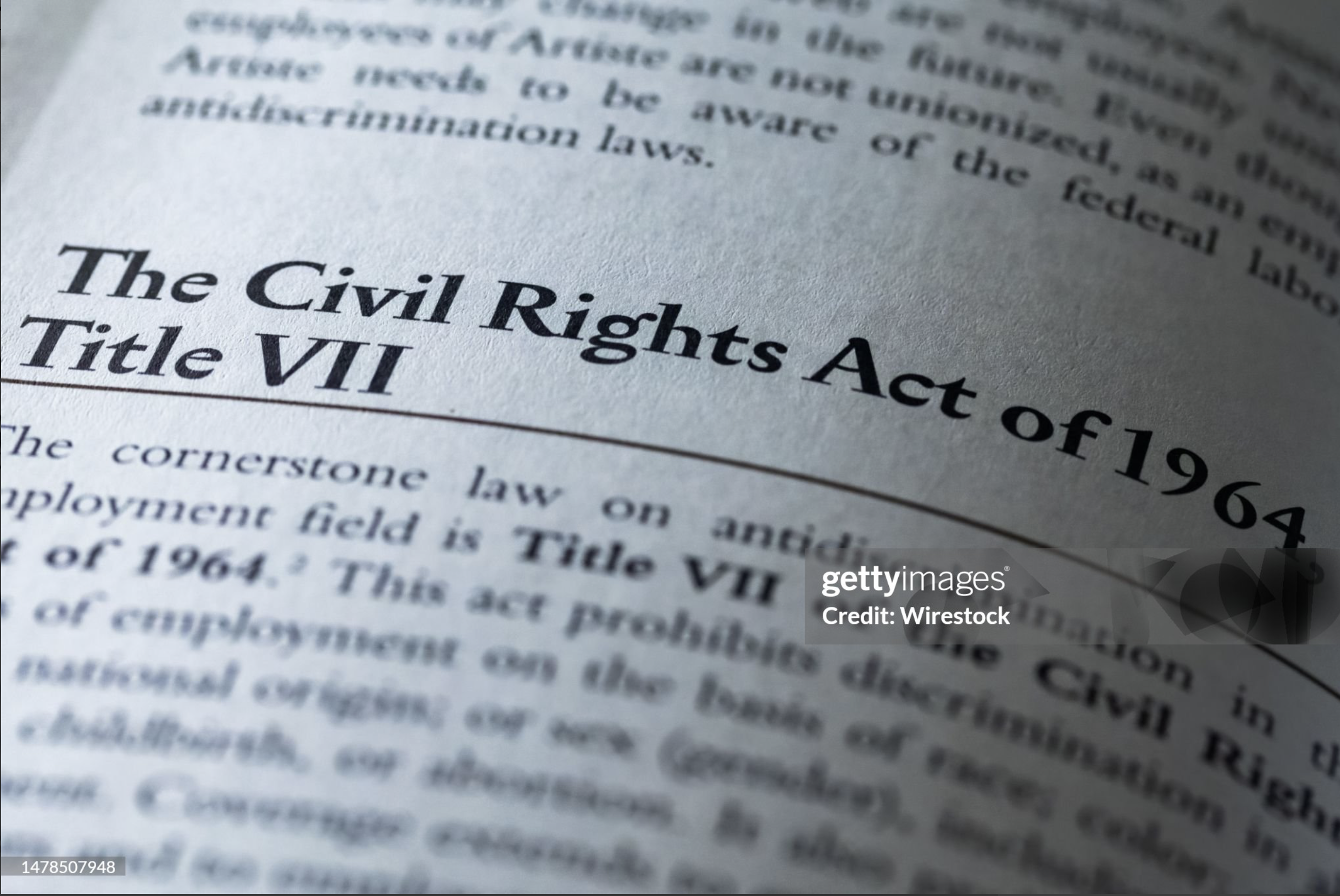
Catholic Charities Bureau Inc. v. Wisconsin Labor & Industry Review Commission (No. 24-154)
Argued 03.31.25 | Decided 06.05.25
Question(s) Presented
Does a state violate the First Amendment’s Religion Clauses by denying a religious organization an otherwise-available tax exemption because the organization does not meet the state’s criteria for religious behavior?
Decision
The Court’s unanimous decision held that Wisconsin’s denial of a religious exemption from unemployment insurance taxes to Catholic Charities Bureau and its affiliates violated the First Amendment. The Court found that the state’s interpretation of its exemption statute imposed a denominational preference and failed to apply religious neutrality as constitutionally required.



Cunningham v. Cornell University (No. 23-1007)
Argued 01.22.25 | Decided 04.17.25
Question(s) Presented
Whether a plaintiff can state a claim by alleging that a plan fiduciary engaged in a prohibited transaction, or whether a plaintiff must plead and prove additional elements and facts not contained in the provision’s text.
Decision
The Court, in a unanimous decision, held that plaintiffs are not required to preemptively allege that ERISA’s exemptions do not apply. Instead, the burden is on the plan fiduciaries to raise and prove these exemptions as affirmative defenses. The decision resolved a circuit split and aligned with the Eighth and Ninth Circuits to treat ERISA exemptions as affirmative defenses rather than necessary elements of the claim to be initially pled by plaintiffs.
Additional Resource(s)
Supreme Court Clarifies ERISA Prohibited Transaction Pleading Standards



EMD Sales Inc. v. Carrera (No. 23-217)
Argued 11.05.24 | Decided 01.15.25
Question(s) Presented
Whether employers must demonstrate the applicability of an FLSA exemption by a mere preponderance of the evidence or clear and convincing evidence.
Decision
Employers do not have to meet a heightened “clear and convincing” standard of proof to establish that an employee is exempt from the minimum wage and overtime requirements of the Fair Labor Standards Act (FLSA). The Court’s decision makes clear that the default “preponderance of the evidence” burden of proof applicable in civil cases controls when employers seek to establish that an exemption applies as an affirmative defense in FLSA cases. In a unanimous decision, the Court reversed a decision of the U.S. Court of Appeals for the Fourth Circuit that found a higher standard applies. The Fourth Circuit’s standard was an outlier, as every other circuit to address the issue held a preponderance of the evidence standard applies.
Additional Resource(s)
U.S. Supreme Court Makes Clear There Is No Heightened Standard for Employers to Establish an FLSA Exemption Applies


Stanley v. City of Sanford, Florida (No. 23-997)
Argued 01.13.25 | Decided 06.20.25
Question(s) Presented
Whether former employees have a right to sue their former employer under the Americans with Disabilities Act (ADA) for discrimination relating to receipt of post-employment fringe benefits.
Decision
Resolving a circuit split, the Court determined that Title I’s protections do not extend to retirees who do not hold or seek employment at the time of the alleged discrimination. The Supreme Court determined that “to prevail under §12112(a), a plaintiff must plead and prove that she held or desired a job, and could perform its essential functions with or without reasonable accommodation, at the time of an employer’s alleged act of disability-based discrimination.”
Additional Resource(s)
Timing Is Everything: SCOTUS Shuts Down Retiree’s ADA Post-Employment Benefits Claim
U.S. Supreme Court Urged to Extend ADA Protections to Former Employees


Trump v. CASA Inc., Trump v. Washington, Trump v. New Jersey �(No. 24a884)
Argued 05.15.25 | Decided 06.27.25
Question(s) Presented
Whether the Court should stay the district courts’ nationwide preliminary injunctions on the Trump administration’s Jan. 20 executive order ending birthright citizenship except as to the individual plaintiffs and identified members of the organizational plaintiffs or states.
Decision
The Court’s 6-3 opinion partially stayed the nationwide injunctions issued by three district courts against enforcing President Trump’s EO 14160, “Protecting the Meaning and Value of American Citizenship,” that plaintiffs believe fundamentally changed birthright citizenship guaranteed by the U.S. Constitution. Trump, et al. v. CASA, Inc., et al.
While the opinion ends district courts’ ability to issue nationwide injunctions, the Court did not address the underlying issue in the case involving the constitutionality of an EO limiting birthright citizenship.
Many previous nationwide injunctions affected employers across a wide range of issues beyond immigration, including DEI, overtime rules and non-competes.
EO 14160 will take effect 30 days after the opinion date (07.27.25), and government agencies can develop and issue guidance concerning the implementation of the order.
Additional Resource(s)
SCOTUS’s CASA Decision Ends Nationwide Injunctions, Creating Uncertainty Around Enforcement of Executive and Agency Actions


Kousisis v. United States (No. 23-909)
Argued 12.09.24 | Decided 05.22.25
Question(s) Presented
Whether a defendant who induces a victim to enter into a transaction under materially false pretenses can be convicted of federal fraud under 18 U.S.C. §1343, even if the defendant did not seek to cause the victim economic loss.
Decision�The Court held that a defendant, that had falsely represented the use of a disadvantaged business to help fulfill a government contract, can be convicted of wire fraud even if they did not intend to cause the victim economic loss, as long as they used materially false pretenses to induce the victim into a transaction involving money or property. The Court reiterated that materiality of falsehood is an element of, and limit on, the federal fraud statutes.


Agency
Benefits
Learn more
Day 54: March 14
President Trump revokes former President Biden’s EO 14026 of April 27, 2021, “Increasing the Minimum Wage for Federal Contractors” (86 FR 22835).
Day 54: March 14
President Trump’s EO 14236, “Additional Rescissions of Harmful Executive Orders and Actions,”(90 FR 13037), rescinds former President Biden’s EO increasing the minimum wage rate for employees working on federal contracts. Pursuant to section 2(d) of EO 14236, the DOL is no longer enforcing EO 14026 or the implementing rule (29 CFR part 23) and will take steps, including rescinding 29 CFR part 23, to implement and effectuate the revocation of EO 14026.
The Trump EO comes amid a circuit split over Biden EO 14026. On Feb. 4, 2025, the U.S. Court of Appeals for the Fifth Circuit reversed a Texas federal court’s decision that invalidated the EO increasing the hourly minimum wage for employees of federal contractors. The appeals court upheld the minimum wage mandate, concluding it was a valid exercise of presidential authority. State of Texas v. Trump,2025 U.S. App. LEXIS 2485 (Feb. 4, 2025) The decision is contrary to the Ninth Circuit’s Nov. 5, 2024, decision in State of Nebraska, et al. v. Julie A. Su, et al., which held that President Biden exceeded his authority under the Procurement Act when he issued EO 14026.
Additional Resources
Uncertainty for Federal Contractors: Circuits Split as Fifth Circuit Upholds Minimum Wage Mandate - Jackson Lewis
Trump Revokes Biden Federal Contractor Minimum Wage Mandate: What to Expect Next - Jackson Lewis�
Uncertainty for Federal Contractors: Circuits Split as Fifth Circuit Upholds Minimum Wage Mandate - Jackson Lewis
Trump Revokes Biden Federal Contractor Minimum Wage Mandate: What to Expect Next - Jackson Lewis�

Day 57: March 17
Universities and Colleges �The statement refers to the increase in antisemitic bias, conduct and harassment on campuses since the Hamas terror attacks in Israel on Oct. 7, 2023. The EEOC’s new focus is buoyed by President Trump’s EO 14188, “Additional Measures to Combat Anti-Semitism,” a “government-wide effort to combat antisemitism.”
Lucas states that the antisemitic conduct was made “[u]nder the guise of promoting free speech” and was in fact “often in violation of the universities’ own time, place and manner policies….” She promises to “hold universities and colleges accountable,” although she does not identify what measures will be specifically undertaken to enforce this promise.
Law Firms�Lucas’ requests for information to 20 law firms seek detailed information about a variety of DEI topics, highlighting the DEI areas of concern for the EEOC. On April 11, the EEOC announced it reached settlements with four law firms. “The firms chose to voluntarily resolve matters with the EEOC, without admission of liability, to avoid an extended dispute,” the Commission announced.
On the heels of Lucas’ action, a coalition of Republican attorney generals led by Texas Attorney General Ken Paxton on April 3 issued their own request for information from the 20 firms, noting that the potential violations referenced in the Lucas letter could also violate state laws.
Additional Resources
Attending to EEOC’s New Workplace Focus: Antisemitism on College Campuses �Requests for Information
Attending to EEOC’s New Workplace Focus: Antisemitism on College Campuses �Requests for Information

Learn more
Day 59: March 19
EEOC and DOJ issue two technical assistance documents on “illegal DEI.”
Day 59: March 19
The technical assistance documents contain questions and answers about discrimination relating to DEI.
Additional Resources
What You Should Know About DEI-Related Discrimination at Work | U.S. Equal Employment Opportunity Commission �What to Do if You Experience DEI at Work
What You Should Know About DEI-Related Discrimination at Work | U.S. Equal Employment Opportunity Commission �What to Do if You Experience DEI at Work

Learn more
DOJ withdraws 11 documents providing guidance to businesses on compliance with Title III of the Americans with Disabilities Act.
Day 59: March 19 cont…
Intended to “streamline” ADA compliance resources for businesses consistent with the “Delivering Emergency Price Relief for American Families and Defeating the Cost-of-Living Crisis” EO (see Jan. 20, 2025), the DOJ Guidance sets forth how the agency interprets certain issues addressed by Title III of the ADA.
Although the guidance has been withdrawn, the law remains the same. Title III requires that covered businesses must provide people with disabilities with an equal opportunity to access the goods or services that they offer. Additionally, the withdrawn guidance was either prepared before the most recent Title III regulations went into effect in 2011 or deals with COVID-19.
Consequently, we do not expect the DOJ’s withdrawal of the guidance to have a significant impact on business operations.
Additional Resources
DOJ Withdraws 11 Pieces of Americans with Disabilities Act Title III Guidance: What Covered Businesses Need to Know
DOJ Withdraws 11 Pieces of Americans with Disabilities Act Title III Guidance: What Covered Businesses Need to Know

Learn more
Day 73: April 2
USCIS returns to issuing documents identifying individuals as either male or female.
Day 73: April 2
Effective April 2, 2025, all documents issued by U.S. Citizenship and Immigration Services will identify individuals as either male or female. Previously, USCIS-issued documents also listed “X” as a gender.
This policy change is a direct response to President Trump’s Jan. 20, 2025, EO vowing to “defend women’s rights and protect freedom of conscience by using clear and accurate language and policies that recognize women are biologically female, and men are biologically male.” In this EO, Trump called for the secretary of homeland security to issue identification documents reflecting the holder’s sex as either male or female only.
Additional Resources
No ‘X’ Marks: USCIS No Longer Issuing Documents with ‘X’ Gender
No ‘X’ Marks: USCIS No Longer Issuing Documents with ‘X’ Gender

Learn more
Day 79: April 8
DOJ’s Data Transfer Rule, finalized Jan. 8, 2025, goes into effect; DOL hits the brakes on defense of Biden-era independent contractor rule.
Day 79: April 8
DOJ
Intended to “streamline” ADA compliance resources for businesses consistent with the “Delivering Emergency Price Relief for American Families and Defeating the Cost-of-Living Crisis” EO (see Jan. 20, 2025), the DOJ Guidance sets forth how the agency interprets certain issues addressed by Title III of the ADA.
Although the guidance has been withdrawn, the law remains the same. Title III requires that covered businesses must provide people with disabilities with an equal opportunity to access the goods or services that they offer. Additionally, the withdrawn guidance was either prepared before the most recent Title III regulations went into effect in 2011 or deals with COVID-19.
Consequently, we do not expect the DOJ’s withdrawal of the guidance to have a significant impact on business operations.
Additional Resources
DOJ New Data Transfer Rule Impacts Hiring, Business Ops + Vendor Mgmt: Time to Review Your Privacy + Cybersecurity Program
DOL
The DOL seeks to stay the litigation challenging the 2024 Independent Contractor Rule, including Frisard’s Transp. LLC v. United States DOL, No. 24-30223, which is pending in the Fifth Circuit. On April 8, the appeals court places the case on hold after the DOL submitted a status report noting it “intends to reconsider the 2024 Rule at issue in this litigation, including whether to issue a notice of proposed rulemaking rescinding the regulation.”
Additional Resources
Employers Still Need to Abide 2024 Independent Contractor Rule Despite DOL Hints of Dropping It
DOJ New Data Transfer Rule Impacts Hiring, Business Ops + Vendor Mgmt: Time to Review Your Privacy + Cybersecurity Program

Learn more
Day 86: April 15
Ten former DOL officials send an open letter to federal contractors; EEOC makes bid to remove voluntary non-binary reporting.
Day 86: April 15
Letter�The 14-page letter, a response to EO 14173 and newly appointed OFCCP Director Catherine Eschbach’s recent statements, aims to “help federal contractors and other employers navigate this complex environment, providing clarity about their options and obligations under the law.”
It outlines how the current administration’s actions contravene established law and explains how compliance with the now-rescinded EO 11246 did not require the unlawful use of preferences or quotas.
The former officials, which include former EEOC Commissioner and past OFCCP Director Jenny Yang, describe how continued proactive practices, including self-assessments and data analysis, remain lawful and are essential to prevent discrimination.
Reporting�In past years, the EEO-1 reporting instructions allowed respondents to provide non-binary data in a narrative form in the comment box of the report. EEOC believes this voluntary option must be removed to comply with EO 14168, Defending Women From Gender Ideology Extremism and Restoring Biological Truth to the Federal Government. (Return to Day 1.)
Additional Resources
Former U.S. Department of Labor Officials Pen Open Letter to Contractor Community Addressing Executive Order 14173 and the Current Administration's Stance on Diversity, Equity and Inclusion
EEOC Submits Request to Eliminate Optional Disclosure of Non-Binary Data for EEO-1 Reporting | Affirmative Action & OFCCP Law Advisor
Advance to Day 102
Former U.S. Department of Labor Officials Pen Open Letter to Contractor Community Addressing Executive Order 14173 and the Current Administration's Stance on Diversity, Equity and Inclusion
EEOC Submits Request to Eliminate Optional Disclosure of Non-Binary Data for EEO-1 Reporting | Affirmative Action & OFCCP Law Advisor

Learn more
Day 99: April 28
President Trump signs the “Enforcing Commonsense Rules of the Road for America’s Truck Drivers” EO.
Day 99: April 28
The EO directs the DoT to reinstate enforcement of the existing federal rule requiring English proficiency for drivers of commercial motor vehicles.
Although the English proficiency rule (49 C.F.R. 391.11(b)(2)) is part of the minimum qualifications for drivers of commercial motor vehicles operating in interstate commerce, with certain limited exceptions, it has previously been interpreted as not requiring drivers who are found only in violation of the rule to be taken out of service. The EO directs that the “Secretary of Transportation [and] the Administrator of the FMCSA … shall take all … actions, consistent with applicable law,” to revise the current rules to ensure that a violation of the English proficiency requirement results in a truck driver being taken out-of-service.
Additional Resources
Mandating English Proficiency for Truck Drivers: Trump EO Shifts Policy for Transportation Industry
Mandating English Proficiency for Truck Drivers: Trump EO Shifts Policy for Transportation Industry












Learn more
Day 94: April 23
President Trump issues the “Restoring Equality of Opportunity and Meritocracy” EO.
Learn more
Day 85: April 14
DOJ and DOE announce the creation of a “Title IX Special Investigations Team” for “ensur[ing] timely, consistent resolutions to protect students, and especially female athletes, from the pernicious effects of gender ideology in school programs and activities.”
Learn more
Day 43: March 3
Trump Administration files a motion to stay the Feb. 21 injunction issued in National Association of Diversity Officers, which the court denies.
Learn more
Day 25: February 13
Sixteen Democratic AGs issue multistate guidance concerning DEI and accessibility.
Learn more
Day 17: February 5
Government agencies issue multiple memos regarding illegal DEI and related internal practices and ways to end DEIA offices, programs and initiatives.
Learn more
Day 9: January 28
EEOC Acting Chair Lucas sets forth policies that reflect EO 14168.
Learn more
Day 5: January 24
Acting U.S. OFCCP Secretary Vincent Micone orders OFCCP employees to stop all related enforcement activity.
Learn more
OFCCP issues its first official agency communication under the current administration, acknowledging President Trump’s revocation of EO 11246.
Learn more
Day 4: January 23
Ten state attorneys general sent six major financial institutions a letter challenging their DEI and ESG programs.
Learn more
Day 2: January 21
The president issues EO 14173, “Ending Illegal Discrimination and Restoring Merit-Based Opportunity,” to end “illegal DEI and DEIA policies.”
Day 4: January 23
Texas Attorney General Ken Paxton leads the coalition of attorneys general from 10 states — Texas, Alabama, Nebraska, Idaho, South Carolina, Indiana, Utah, Iowa, Virginia and Montana. The letter:
Asserts that these institutions “appear to have embraced race- and sex-based quotas and to have made business and investment decisions based not on maximizing shareholder and asset value, but in the furtherance of political agendas.”
Claims that the companies appear to have “unlawfully advance[d] discriminatory employment quotas,” “[u]nlawfully pursu[ed] discriminatory board quotas,” “use[d] discriminatory supplier quotas,” and “appear to be violating fiduciary duties and duties of loyalty and prudence,” in potential violation of existing federal and/or state law.
Includes detailed requests for information and specific questions to the financial institutions regarding their DEI and ESG programs and seeks a response within 45 days. The Attorneys General frame these requests as an “opportunity to avoid a lengthy enforcement action,” threatening potential legal action against these institutions to vindicate alleged violations of federal and/or state law.
See Day 25.
Additional Resource(s)
Ten State Attorneys General Launch Inquiry into Major Financial Institutions’ DEI & ESG Programs
Advance to February 13


Day 2: January 21
The EO signals the administration’s focus on targeting organizations that violate existing anti-discrimination laws in their employment practices. The key message — which is not necessarily new: Employers should focus on ensuring their DEI practices comply with nondiscrimination laws.
Section 3 of EO 14173, “Terminating Illegal Discrimination in the Federal Government,” focuses on the federal contracting process and revokes a series of earlier EOs and presidential memoranda, including EO 11246, the primary EO on federal contractor race and sex affirmative action obligations.�
EO 14173 bars federal contractors from considering race, color, sex, sexual preference, religion or national origin in their employment, procurement or contracting practices “in ways that violate the Nation’s civil rights laws.”�
It requires contractors to certify that they do not operate any programs promoting DEI that violate any applicable federal anti-discrimination laws. It directs federal agencies, in coordination with the attorney general, to take action to implement the principles of the EO.�
The EO does not change existing law regarding discrimination in contracting, employment or otherwise, but it signals increased investigation and enforcement activities relating to DEI programs.
Additional Resource(s)
Trump Administration Revokes EO 11246, Prohibits ‘Illegal’ DEI: What the EO Ending Illegal Discrimination and Restoring Merit-Based Opportunity Means for Employers
Post-EO DEI Assessments: What Are They and Why Should You Do Them?

Day 5: January 24
Acting Secretary Micone’s order is in response to President Trump’s Day 2 EO revoking Johnson-era federal contractor affirmative action obligations. Specifically, the order instructs OFCCP employees to:
“Cease and desist all investigative and enforcement activity under the rescinded Executive Order 11246 and the regulations promulgated under it. This includes all pending cases, conciliation agreements, investigations, complaints, and any other enforcement-related or investigative activity.”
“Notify all regulated parties with impacted open reviews or investigations by January 31, 2025, that the EO 11246 component of the review or investigation has been closed and the Section 503 and VEVRAA components of the review or investigation are being held in abeyance pending further guidance.”
Additional Resource(s)
OFCCP Ordered to Stop All Enforcement Activity and Close Open Audits Under Revoked Executive Order 11246
Employer Reactions to Federal Funding Freeze Could Have WARN Act Consequences


Day 9: January 28
In an agency press release, Lucas includes the following new policy directives to support the “Defending Women From Gender Ideology Extremism and Restoring Biological Truth to the Federal Government” EO:
Announcing the priority to “defend the biological and binary reality of sex and related rights, including women’s rights to single-sex spaces at work.”�
Removing the agency’s “pronoun app.”�
Ending the use of the “X” gender marker and “Mx.” prefix for the charge intake process.�
Removing materials promoting “gender ideology” on the Commission’s internal and external websites �and documents.
There was discussion of potential changes in EEOC posters, but no such changes have been implemented yet.
Additional Resource(s)
Quorum-Less EEOC and New Acting Chair: What Are the Impacts for Employers?
Uncertainty for Federal Contractors: Circuits Split as Fifth Circuit Upholds Minimum Wage Mandate - Jackson Lewis
Trump Revokes Biden Federal Contractor Minimum Wage Mandate: What to Expect Next - Jackson Lewis�

Day 25: February 13
The guidance was issued “in response to concerns from employers following a Trump Administration executive order that purportedly targets ‘illegal DEI and DEIA policies,’” according to Massachusetts AG Andrea Joy Campbell.
The guidance asserts that executive orders regarding DEI programs, while “inaccurate and misleading,” have no impact on existing anti-discrimination statutes. It assures employers that “[p]olicies and practices that promote diversity, equity, inclusion, and accessibility are not the same as preferences in individual hiring and promotion decisions that have been found to be unlawful,” and as such “[t]he Executive Order cannot and does not prohibit these otherwise lawful practices and policies.”
Massachusetts, Illinois, Arizona, California, Connecticut, Delaware, Hawaii, Maine, Maryland, Minnesota, Nevada, New Jersey, New York, Oregon, Rhode Island, and Vermont are represented in the letter.
Additional Resource(s)
Multi-State Guidance Concerning Diversity, Equity, Inclusion, and Accessibility Employment Initiatives (Letter)
Attending to EEOC’s New Workplace Focus: Antisemitism on College Campuses �Requests for Information

Day 43: March 3
In rejecting the stay application, the court rules that the factors for the “extraordinary remedy” of a stay or a limitation of the “nationwide” application of the stay do not exist. The court notes the administration has not established a probability of success on the merits, particularly since the application relies upon the same arguments the court found unpersuasive when the preliminary injunction was granted.
Additional Resource(s)
DEI Injunction Stands: Court Denies Trump Administration’s Motion to Stay

Day 17: February 5
Department of Justice�AG Pamela Bondi issues two memos addressing illegal DEI and related internal practices.
The first AG memo, “Ending Illegal DEI and DEIA Discrimination and Preferences,” announces the DOJ’s intention to investigate, eliminate and penalize “illegal DEI and DEI preferences, mandates, policies, programs and activities in the private sector and in educational institutions that receive federal funds.”
�The second memo directs the DOJ to evaluate “consent decrees, settlement agreements, litigation positions (including those set forth in amicus briefs), grants or similar funding mechanisms, procurements, internal policies and guidance and contracting arrangements” and remove all references to race- or sex-based preferences, diversity hiring targets, or “preferential treatment” based on DEI- or DEIA-related criteria.
�Office of Personnel Management�OPM issues memorandum on “ending DEIA Offices, Programs and Initiatives,” which provides guidance to federal agencies regarding DEI in the federal workplace. The memo addresses employee resource groups and affinity groups.
Additional Resource(s)
Ending Illegal DEI and DEIA Discrimination and Preferences
Eliminating Internal Discriminatory Practices
Further Guidance Regarding Ending DEIA Offices, Programs and Initiatives (U.S. OMP Memorandum)
DOJ Withdraws 11 Pieces of Americans with Disabilities Act Title III Guidance: What Covered Businesses Need to Know

Day 85: April 14
The Team appears to be a reallocation of current government resources rather than any addition of new positions or personnel. The Departments are allocating resources to bolster enforcement of Title IX concerning participation of transgender athletes, the use of intimate spaces, and “gender ideology” generally. Complaints about transgender students participating in athletics or using intimate spaces based on their gender identity, as opposed to their biological sex at birth, likely will be prioritized for enforcement action. Policies and practices relating to pronouns and name changes based on gender identity also will be subject to increased scrutiny.
Institutions subject to Title IX should review their policies and practices to ensure compliance with current law, review their Title IX training materials, and consider the benefits of providing employees with additional training.
Additional Resource(s)
Institutions’ Title IX Compliance Under the Microscope: DOJ, ED Form Special Investigations Team to Enforce Gender Ideology EOs
No ‘X’ Marks: USCIS No Longer Issuing Documents with ‘X’ Gender

Day 94: April 23
The EO is intended “to eliminate the use of disparate-impact liability in all contexts to the maximum degree possible to avoid violating the Constitution, Federal civil rights laws, and basic American ideals.” The EO:
Revokes the Presidential approvals of the parts of regulations that prohibit disparate impact discrimination under Title VI of the Civil Rights Act of 1964. �
Instructs federal agencies to deprioritize enforcement of all statutes and regulations to the extent they include disparate-impact liability.�
Instructs the attorney general to repeal or amend regulations that rely on a disparate impact theory of liability.�
Instructs various federal agencies and agency heads to evaluate current programs, investigations, civil suits or positions that implicate disparate impact liability and “take appropriate action” consistent with the EO.�
Instructs the attorney general, in coordination with other agencies, to seek ways to limit the use of disparate impact theories of liability at the state level.
The EO’s most likely immediate impact is on employers facing agency action based on a disparate impact theory of liability.
Additional Resource(s)
Does Employer Disparate Impact Liability Still Exist? The Latest EO Pushes to Eliminate It

Day 102: May 1
The OMB approves the EEOC’s request to remove the option for employers to voluntarily disclose non-binary data for EEO-1 reporting. The EEOC made this request for a “non-substantive change” in response to President Trump’s EO 14168, which recognizes only two sexes — male and female (see Day 86).
Additional Resource(s)
EEOC Submits Request to Eliminate Optional Disclosure of Non-Binary Data for EEO-1 Reporting

Day 121: May 20
The agency opens its portal for collecting EEO-1 Data and provides a June 24 submission deadline, explaining that the shortened filing period is “part of the EEOC’s efforts to identify continued cost savings for the American public....”
Lucas posts a message reminding filers of their “obligations under Title VII not to take any employment actions based on or motivated in whole or in part by, an employee’s race, sex, or other protected characteristics” noting, “there is no ‘diversity’ exception to Title VII’s requirements.” In addition, she states that the EEOC will comply with the executive order to deprioritize “disparate impact” enforcement, focusing instead on addressing intentional discrimination claims.
Additional Resource(s)
BREAKING NEWS: EEO-1 Data Collection Opens

Day 4: January 23 (cont’d)
The OFCCP’s public statement notes that, for 90 days, contractors may continue to adhere to the regulatory scheme in place prior to the signing of the EO.
The OFCCP confirms that statutory requirements under Section 503 of the Rehabilitation Act and VEVRAA remain in effect, and that information about the agency’s “current activities will be forthcoming in the upcoming weeks.”
Additional Resource(s)
OFCCP Makes First Public Statement Following Revocation of Executive Order 11246

Learn more
Day 102: May 1
EEOC requests removal of the option for employers to voluntarily report non-binary data for their workforce is approved “without change.”
Learn more
Day 121: May 20
EEOC opens its EEO-1 Data Collection portal, providing a truncated deadline and a message from EEOC Acting Chair Lucas.












Learn more
Day 136: June 4
President Trump signs a proclamation suspending entry into the U.S. for nationals of 19 countries.
Learn more
Day 128: May 27
Trump Administration orders U.S. embassies and consulates to pause scheduling new interviews for student visa applicants.
Learn more
Day 123: May 22
Secretary Kristi Noem orders DHS to terminate Harvard’s Student and Exchange Visitor Program (SEVP) certification for alleged “pro-terrorist conduct.”
Learn more
Day 120: May 19
U.S. Supreme Court allows Trump Administration to end TPS for Venezuela.
Learn more
Day 85: April 14
DHS’s decision to terminate humanitarian parole for citizens of five Central and South American countries is blocked.
Learn more
Day 65: March 25
Trump Administration terminates humanitarian parole for citizens of five Central and South American countries.
Learn more
Day 52: March 12
USCIS issues an Interim Final Regulation (IFR) designating a new registration form to comply with statutory alien registration and fingerprinting provisions.
Learn more
Day 46: March 6
The State Department launches “Catch and Revoke,” a program using AI to monitor foreign nationals, particularly student visa holders.
Learn more
Memo announces DOJ’s intention to expand worksite enforcement, use of criminal statutes to address illegal immigration.
Learn more
Day 17: February 5
DHS Secretary Kristi Noem decides not to extend the 2023 Venezuela TPS designation, so it will expire April 7, 2025.
Learn more
Day 4: January 23
U.S. District Court in Seattle enjoins enforcement of the Trump EO ending birthright citizenship, calling it “blatantly unconstitutional.” The judge issued a 14-day temporary restraining order.
Learn more
Day 1: January 20
President Trump signs multiple EOs impacting immigration, including ones for ending birthright citizenship, enhanced vetting, and creating “Homeland Security Task Forces.”
Day 1: January 20
The immigration-related EOs are:
EO 14148, “Additional Rescissions of Harmful Executive Orders and Actions,” revokes 78 Biden-era EOs, including EO 14012, “Restoring Faith In Our Legal Immigration Systems and Strengthening Integration and Inclusion Efforts for New Americans,” that established USCIS deference to prior decisions in certain cases, streamlined the naturalization process, and reduced the number of Requests for Evidence and Denials received by employers and individuals applying for immigration benefits.�
EO 14159, “Protecting the American People Against Invasion” calls for enforcement of U.S. immigration laws that, among others, aims to limit humanitarian parole to individuals who demonstrate “urgent humanitarian reasons for a significant public benefit derived from their … continued presence in the United States.”�
EO 14160, “Protecting the Meaning and Value of American Citizenship,” directs federal agencies to refuse to recognize U.S. citizenship for children born in the United States to mothers in the country who are present in the United States illegally, or on nonimmigrant visas if the father is not a U.S. citizen or green card holder.�
EO 14161, “Protecting the United States from Foreign Terrorists and Other National Security and Public Safety Threats,” calls for enhancing the vetting and screening of aliens, suspend entry of migrants from countries of particular concern, and re-establish a uniform baseline for visa screening and vetting standards and procedures consistent with the baseline that existed during the first Trump Administration.�
EO 14165, “Securing Our Borders,” outlines the administration’s stance on securing borders, internal enforcement, and removal.
Additional Resource(s)
President Trump’s Executive Orders on Immigration and What They Mean for Employers
Rescinded Biden Immigration Executive Orders: What Employers Need to Know
President Trump’s Immigration-Related Executive Orders: Potential Impact on Employers

Day 4: January 23
Attorneys general of Arizona, Illinois, Oregon and Washington filed the suit. Eighteen other states filed a similar lawsuit in Massachusetts federal court.
Since then, judges in Maryland, Massachusetts, and Washington have issued nationwide injunctions barring the government from implementing the EO.
President Trump appealed to the U.S. Supreme Court to limit these nationwide injunctions, arguing that they disrupt the judicial process and overreach into executive branch operations. The administration’s March 13 emergency applications asked that the court orders be limited to the specific individuals and organizations involved in the lawsuits. The administration contended that there is no justification for the injunctions to apply nationwide, particularly to the 18 states that support the EO.
The Supreme Court’s decision could potentially lead to a ruling that restricts district courts from issuing nationwide injunctions. The administration also argues that the injunctions improperly interfere with the executive branch’s ability to develop guidance for implementing the EO. If the justices do not agree to limit the injunctions to individuals and organizations, the administration has requested that they be restricted to the plaintiff states.
Additional Resources
Seattle Federal Judge Enjoins Enforcement of EO Banning Birthright Citizenship
SCOTUS to Consider Emergency Applications to Lift Nationwide Injunctions on EO Ending Birthright Citizenship?

Day 17: February 5
In a Federal Register notice, DHS Secretary Kristi Noem announced on Jan. 29, 2025, that she is vacating former DHS Secretary Alejandro Mayorkas’ Jan. 17, 2025, redesignation of Temporary Protected Status (TPS) for Venezuela for an additional 18 months. This announcement impacts approximately 600,000 Venezuelans currently in the United States with TPS.
The Employment Authorization Documents (EADs) of individuals who registered for Venezuela TPS under the 2023 designation currently expire April 2, 2025. EADs of individuals who registered under the prior 2021 designation, including individuals who registered under both the 2021 and 2023 designations, currently expire March 10, 2025.
Advocacy groups and Venezuelan immigrants have filed suit in federal courts over terminated removal protections for Venezuelans in the United States. The suits further contend that even if DHS possessed legal authority to terminate Venezuela TPS, it arbitrarily deviated from prior decisions, incorrectly concluding that Venezuelans granted TPS reside in the United States illegally.
See May 19.
Additional Resource(s)
What DHS’ Vacatur of Venezuelan TPS Means for Employers
Venezuelan TPS Update: What Employers Should Know About 2023 Designation Not Extended
Venezuelan TPS Update: What Employers Should Know About Expiration of EADs for 2023 Designation
Two Lawsuits Challenge Trump Administration’s Termination of Venezuela TPS�

Day 17: February 5 (cont’d)
The memo underscores the administration’s commitment to enforcement initiatives that hold employers accountable for compliance failures. This policy shift may result in companies facing criminal charges in cases that the DOJ has not previously pursued, such as charges for harboring undocumented individuals, engaging in unlawful employment practices, and committing document fraud in the I-9 process.
Information will be gathered through various methods, including raids, I-9 Notices of Inspection, and document subpoenas. The directive mandates that DOJ prosecutors accept and pursue the most serious criminal violations referred by law enforcement agencies, with limited discretion to decline cases.
Additional Resource(s)
What DOJ’s New Focus on Immigration Enforcement Means for Businesses
DOJ Ending Funding to Sanctuary Jurisdictions | Bondi Memo

Day 46: March 6
This initiative, which reflects the Trump Administration’s heightened scrutiny of foreign nationals and highlights the tension between national security measures and civil liberties, arises out of the following EOs that President Trump issued shortly after taking office: EO 14161, “Protecting the United States from Foreign Terrorists and Other National Security and Public Safety Threats,” and EO 14188, “Additional Measures to Combat Anti-Semitism.”
On Mar. 25, 2025, the Knight First Amendment Institute filed a lawsuit seeking to block the Trump Administration’s policy of arresting, detaining, and deporting noncitizen students and faculty, including the “Catch and Revoke” program. American Association of University Professors, et al. v. Rubio, et al., No. 1:25-cv-10685 (D. Mass.).
Additional Resource(s)
‘Catch and Revoke’ Program Takes Off: State Department AI-Driven Visa Crackdown Blog

Day 52: March 12
USCIS announces it is establishing a new form and process by which undocumented immigrants may register pursuant to Section 262 of the Immigration and Nationality Act (INA) (8 USC § 1302) and the “Protecting the American People Against Invasion” EO (see Day 1), which emphasized that non-compliance should be treated as a priority for both civil and criminal enforcement.
The IFR went into effect on April 11, 2025.
Additional Resource(s)
USCIS to Establish Alien Registration Form and Process for Undocumented Immigrants
USCIS Issues Regulation Requiring Alien Registration

Day 65: March 25
HS Secretary Kristi Noem announced the termination of humanitarian parole for citizens of Cuba, Haiti, Nicaragua, and Venezuela, also known as the CHNV program, in the Federal Register on March 25, 2025.
Humanitarian parole for citizens of these countries will expire no later than 30 days from March 25, 2025, or April 24, 2025.
CHNV beneficiaries who did not file some other immigration benefit application prior to publication of the termination notice must depart the United States on or before April 24, 2025, or the expiration of their humanitarian parole, whichever date is sooner. DHS will prioritize removal of CHNV beneficiaries without pending immigration applications who remain in the United States beyond the expiration of their humanitarian parole.
See Day 120.
Additional Resource(s)
Trump Administration Terminates Humanitarian Parole for Citizens of Cuba, Haiti, Nicaragua, Venezuela

Day 85: April 14
U.S. District Court Judge Indira Talwani issued an order blocking DHS’s March 25 decision to terminate humanitarian parole for individuals from Cuba, Haiti, Nicaragua, and Venezuela paroled into the United States under the CHNV program. The judge also certified the case as a class action.
�The CHNV program allows approximately 450,000 people to live and work legally in the United States. On March 25, 2025, DHS announced that it was terminating, as of April 24, 2025, the CHNV program and revoking work authorization issued under the program.
Pursuant to Judge Talwani’s order, DHS has been enjoined from terminating CHNV parole for all beneficiaries by Federal Register notice. While the order is in effect, CHNV beneficiaries’ humanitarian parole and related work authorization document will expire on the date listed on the humanitarian parole approval notice/I-94 and related work authorization document. Judge Talwani’s ruling specifies that DHS cannot revoke a CHNV beneficiary’s humanitarian parole and related work authorization prior to the stated expiration date without a review of the beneficiary’s individual case.
Additional Resource(s)
Federal Court to Block Termination of Humanitarian Parole for Citizens of Cuba, Haiti, Nicaragua, Venezuela
Termination of Humanitarian Parole for Citizens of Cuba, Haiti, Nicaragua, Venezuela Blocked by Federal Court

Day 120: May 19
The U.S. Supreme Court granted the Justice Department’s request to lift U.S. District Court Judge Edward Chen’s March 31 order halting the Department of Homeland Security’s rescission of Temporary Protected Status for approximately 350,000 Venezuelans.
The original district court ruling had postponed the termination of TPS, but the Supreme Court’s stay permits DHS to move forward while the case is under appeal. While the language of the Federal Register Notice indicates that Venezuelan TPS holders who registered under the 2023 designation will no longer be work authorized, the Supreme Court specifically noted that its Miscellaneous Order (05/19/2025) does not preclude challenges to any DHS actions that seek to invalidate TPS documents, including work authorizations, with an Oct. 3, 2026, expiration date.
Additional Resource(s)
Supreme Court Allows Trump Administration to End Temporary Protected Status for Venezuela

Day 123: May 22
By revoking Harvard’s SEVP authorization, DHS terminates the university’s ability to enroll international students. Enrolled students must transfer to another university, obtain some other legal visa status or depart the U.S. ��The next day, May 23, Harvard files suit in U.S. District Court for the District of Massachusetts seeking an injunction on revocation of Harvard’s SEVP certification, alleging that the revocation violates both the U.S. Constitution and Administrative Procedure Act. On the same day, the district court issued a Temporary Restraining Order enjoining the U.S. government and its agents, including DHS, from implementing the SEVP termination until there is a hearing on the matter. The court found that Harvard would face immediate and irreparable injury if the termination takes effect before such a hearing.
Additional Resources
Federal Court Enjoins DHS’s Revocation of Harvard’s Ability to Enroll International Students
DOJ New Data Transfer Rule Impacts Hiring, Business Ops + Vendor Mgmt: Time to Review Your Privacy + Cybersecurity Program

Day 128: May 27
The move to halt new student and exchange visa interviews at U.S. embassies and consulates comes as the Trump Administration considers expanding mandatory social media vetting for all foreign student applicants. Outlined in a cable signed by Secretary of State Marco Rubio, it is part of a broader effort to tighten immigration controls and scrutinize perceived antisemitism on university campuses, particularly elite institutions like Harvard. The proposed vetting expansion follows earlier measures targeting students involved in protests against Israel’s actions in Gaza, although the criteria for scrutiny remain vague. This policy could significantly delay visa processing and financially impact universities that have high enrollment numbers among international students.
Additional Resources
State Department Halts New Student Visa Interviews, Expands Social Media Vetting

Day 136: June 4
As of June 9, nationals of the following countries are fully suspended from entering the U.S. as immigrants or nonimmigrants: Afghanistan, Burma, Chad, Republic of Congo, Equatorial Guinea, Eritrea, Haiti, Iran, Libya, Somalia, Sudan, and Yemen.
Nationals of the following countries are partially suspended from entering the U.S. as immigrants or as nonimmigrants on B-1, B-2, B-1/B-2, F, M, or J visas: Burundi, Cuba, Laos, Sierra Leone, Togo, Turkmenistan, and Venezuela.
The suspension on entry applies to all nationals of the designated countries who are outside of the U.S. on the effective date and do not have a valid immigrant or nonimmigrant visa on the effective date. Visas issued before June 9, 2025, will not be revoked. Similar to the travel ban under President Trump’s first term, there are exceptions to the suspension on entry in specific circumstances, which include:
U.S. Lawful Permanent Residents (“green card holders”).�
Foreign nationals holding dual citizenship with and traveling on the passport of a country not subject to the suspension.�
Certain A, C, G, or NATO nonimmigrant visa holders.�
Athletes, members of an athletic team, coaches, support personnel, and immediate relatives traveling for a major sporting event, such as the World Cup or Olympics.�
Certain immediate relatives of U.S. citizens.�
Adoptions.�
Special Immigrant Visas for Afghanis or US government employees. �Immigrant visas for ethnic and religious minorities facing persecution in Iran.�Individuals granted asylum, refugee status, or withholding of removal under CAT.












Learn more
Day 131: May 30
Trump Administration plans to eliminate the Office of Federal Contract Compliance Programs.
Learn more
Day 80: April 9
Trump Administration receives an emergency stay from the U.S. Supreme Court to halt reinstatement of NLRB Member Gwynne Wilcox.
Learn more
Day 71: March 31
President Trump nominates Andrew Rogers to lead the DOL’s Wage and Hour Division and Jonathan Berry to serve as solicitor of labor.
Learn more
Day 64: March 24
DOL appoints Catherine Eschbach as Director of OFCCP, taking over for Acting Director Michael Schloss; Jonathan Snare is nominated to serve on hollowed-out OSHRC.
Learn more
Day 51: March 11
Lori Chavez-DeRemer takes the helm at the DOL.
Learn more
Day 15: February 3
President Trump selects William Cowen to serve as acting NLRB GC.
Learn more
Day 8: January 27
President Trump fires NLRB Member Gwynne Wilcox; makes leadership changes at EEOC.
Learn more
Day 2: January 21
EEOC Commissioner Andrea Lucas is named Acting Chair of the Commission; Marvin Kaplan, who served as chair during the president’s first term, is tapped to helm NLRB.
Day 2: January 21
Employers can expect a greater focus and increase in EEOC-initiated litigation on issues Lucas had championed in the past and in her policy statements, such as allegedly illegal DEI policies disfavored by the administration that could lead employers to make race- and sex-conscious hiring decisions, pregnancy discrimination, and religious discrimination and accommodation issues. Lucas has served as an EEOC member since 2020, when President Trump nominated her during his first term.
February 4: President Trump named Andrew B. Rogers as acting general counsel. Rogers previously served as chief counsel to Lucas.
March 25: President renominates Acting Chair Andrea R. Lucas to another five-year term at the EEOC.
June 26: The Senate Labor Committee’s 12 – 11 party line vote advances Lucas to a full floor vote to consider her nomination to serve a second five-year term.
Additional Resource(s)
Quorum-Less EEOC and New Acting Chair: What Are the Impacts for Employers?

Day 8: January 27
NLRB�Removing Wilcox leaves the NLRB without a quorum and sets up a constitutional challenge over for-cause removal protections for federal agency leaders. Wilcox will be reinstated and removed two more times as the case moves through the appellate process.
�See April 9.
EEOC
President Trump fires General Counsel Karla Gilbride and removes Commissioners Charlotte Burrows and Jocelyn Samuels, ending a Democratic Commission majority that was expected to exist until 2026.
Only Acting Chair Lucas and Commissioner Kolpana Kotagal remain. The Commission now has only two members, one of each party, the Commission is short one member required for a quorum.
Without a quorum until another commissioner is appointed and confirmed, existing EEOC litigation and charge investigations are likely to proceed as usual.
With no quorum, changes are not likely in:
Revoking old guidance or instituting new guidance
Revising or implementing regulations
Changing existing EEO-1 requirements
On May 6, President Trump nominated Brittany Bull Panuccio as Commissioner to the EEOC. Panuccio previously served at the Department of Education in the first Trump Administration and is said to have played a key role in revamping Title IX regulations related to sexual assault investigations on college campuses. If Panuccio is confirmed, the Commission’s quorum would be restored. She would serve as a member of the Commission until July 1, 2029.

Day 15: February 3
The selections come as the NLRB is still without a quorum. (See Day 9.)
Within two weeks, on Day 26 (See Feb. 14), Cowen rescinds certain memoranda issued by former GC Jennifer Abruzzo. Among the rescinded memos are: GC 21-06 and GC 21-07 addressing remedies to be sought, GC 21-08 on the rights of student-athletes under the NLRA; GC 23-02 on electronic monitoring; GC 23-05 on severance agreements and GC 23-08 and GC 25-01 on non-compete agreements.
Three months later, on May 20, 2025, Cowen issues another memorandum emphasizing the need for efficiency in resolving unfair labor practice cases.
Additional Resource(s)
Staying Steady Amid NLRB Upheaval: Q&As on What Employers Can Expect
GC 25-05 Rescission of Certain General Counsel Memoranda �

Day 51: March 11
The new leadership has since halted defense of Biden-era DOL rules in the face of ongoing legal challenges and signaled a change in direction toward compliance assistance over enforcement.
Additional Resource(s)
Final Touches: President Trump Rounds Out DOL Leadership with Two Nominees
Employer Reactions to Federal Funding Freeze Could Have WARN Act Consequences


Day 64: March 24
Eschbach
Director Eschbach comes from the private sector, where she focused on complex appellate issues as an attorney with the firm Morgan, Lewis & Bockius LLP.
In an email to staff, Eschbach says the agency will review previously submitted federal contractor affirmative action plans for evidence of discriminatory employment practices. She writes, “most of what OFCCP had been doing was out of step, if not flat out contradictory, to our country’s laws, and all reform options are on the table.”
Snare
Previously nominated to serve as Deputy Solicitor of Labor on February 2024, President Trump taps Jonathan Snare to serve on the Occupational Safety and Health Review Commission. The independent OSHRC hears employer appeals of OSHA citations following decisions of OSHRC administrative law judges. However, the body had been without a quorum since April 2023, and the term of OSHRC Chair Cynthia Attwood, the last remaining commissioner, was set to expire on April 27, 2025. Snare’s confirmation would leave one remaining opening to fill before the OSHRC can resume operations.
Additional Resource(s)
BREAKING NEWS: OFCCP to Revisit Previously Submitted Contractor Files

Day 71: March 31
Rogers and Berry will round out the administration’s DOL leadership. Additional appointees include Elisabeth Messenger to head the Office of Labor-Management Standards, the DOL arm that oversees labor unions.
Additional Resource(s)
Final Touches: President Trump Rounds Out DOL Leadership with Two Nominees

Day 80: April 9
Following President Trump’s unprecedented termination of Board Member Wilcox, the D.C. Circuit issued an en banc order reinstating her to the Board, citing the U.S. Supreme Court’s 1935 Humphrey’s Executor decision upholding the constitutionality of for-cause removal protections for federal agency leaders. The Trump Administration filed an emergency application to the U.S. Supreme Court for a stay of the D.C. Circuit’s order, arguing subsequent case law narrowed Humphrey’s Executor to apply only to multi-member agencies that do not wield substantial executive power, making the case inapplicable to the Board.
In a 6-3 order, the U.S. Supreme Court granted Trump’s request for an emergency stay and halted Wilcox’s reinstatement while the D.C. Circuit issues a decision on the merits of the case.
Trump, et al. v. Wilcox, et al., No. 24A966 (Apr. 9, 2025).
Additional Resource(s)
NLRB Overhaul: Setting Stage for Employers, Trump Removes Board Member Wilcox, Fires GC Abruzzo

Day 131: May 30
In a budget justification, the Trump Administration announces its plans to close the DOL’s OFCCP and reassign the anti-discrimination enforcement for veterans and disabled workers to other agencies, including the EEOC. The move requires Congress’ approval.
Additional Resource(s)
FY2026 Department of Labor Budget in Brief (PDF)












Learn more
Day 129: May 28
Trump Administration reverses the treatment of both ESG funds and cryptocurrency in employer-sponsored retirement plans.
Learn more
Day 116: May 15
Departments of Labor, Health and Human Services, and the Treasury issue a joint statement announcing they will not enforce the 2024 Final Rule on Mental Health Parity and Addiction Equity Act (MHPAEA) requirements for now.
Learn more
Day 33: February 21
President Trump issues “America First Investment Policy” EO.
Day 33: February 21
The EO addresses retirement plan investments in foreign adversary companies and:
Proposes potential restrictions on employer-sponsored retirement plans investing in foreign adversary companies.�
Directs the Department of Labor to evaluate whether such investments violate national security interests.�
Suggests potential fiduciary obligations for plan sponsors to avoid investments in companies linked to China, Russia, and other “countries of concern.”
�Plan sponsors are awaiting further direction from the administration.
Additional Resources
America First Investment Policy


Day 116: May 15
Tri-agency nonenforcement policy provides some relief to plan sponsors struggling with recently enacted rules regarding mental health parity in their health plans.�
This enforcement pause applies to the new provisions introduced in the 2024 Final Rule, which amended the 2013 rule and added new requirements for nonquantitative treatment limitation comparative analyses.�
The agencies cited EO 14219, which directs federal agencies to avoid regulations that impose undue burdens or costs not justified by public benefit.�
The ERISA Industry Committee filed a lawsuit challenging the 2024 Final Rule, and the agencies have asked the court to hold the case in abeyance while they reconsider the rule.�
As a result, employers are not currently required to complete the fiduciary certification that was part of the 2024 rule.�
However, the statutory obligations under MHPAEA, as amended by the Consolidated Appropriations Act of 2021, remain in effect.�
Employers should continue to document their comparative analyses and monitor for further guidance.
Additional Resources
ERIC Write up of the 2024 Final Rules
Department of Labor’s Nonenforcement Policy
Advance to February 13


Day 129: May 28
The changes to the 401(k) investment rules, which also signal that heightened scrutiny may apply to foreign-based investments in the future, include:
ESG Out�
The Trump Administration indicated in a government filing that it intends to replace the Biden-era rule regulating how and the extent to which plan sponsors may consider ESG factors in determining investment options under their 401(k) plans. �
It is expected that the new Trump Administration rule will be similar to the rule that preceded the current rule (which has been challenged in court) and which will place a chill on plan sponsors considering ESG factors in their investment line-ups.
Crypto In
On June 2, 2025, the DOL issued Compliance Assistance Release No. 2025-01, which rescinded its 2022 guidance that had discouraged the inclusion of cryptocurrency in 401(k) plans. �
The 2025 update restores a “neutral” enforcement posture.�
This change opens the door for plan sponsors to consider crypto offerings, particularly in self-directed brokerage windows, provided they conduct thorough due diligence and maintain robust participant education and risk disclosures.
Additional Resources
State of Utah v. Chavez-DeRemer, Docket No. 23-11097 (5th Cir. Oct 30, 2023), Court Docket
Cryptocurrency in 401(k): A Balanced Approach Returns
Advance to February 13












Learn more
Day 60: March 20
President Trump signs the “Improving Education Outcomes by Empowering Parents, States, and Communities” EO with the aim of eliminating the Department of Education.
Learn more
Day 54: March 14
Trump Administration wins motion to stay enforcement of the district court’s preliminary DEI injunction.
Learn more
Day 33: February 21
A federal district court issues a preliminary injunction prohibiting the Trump Administration from enforcing three provisions of EOs 14151 and 14173.
Learn more
Day 26: February 14
OCR issues a Dear Colleague Letter directing educational institutions not to segregate or separate or otherwise distribute benefits or burdens on the basis of race.
Learn more
Day 24: February 12
The Department of Education’s Office for Civil Rights (OCR) rescinds Biden-era NIL guidance.
Learn more
Day 17: February 5
The White House publishes the “Keeping Men Out of Women’s Sports” EO.
Learn more
Day 10: January 29
Educational institutions get schooled in “discriminatory equity ideology” as President Trump issues two new EOs.
Day 10: January 29
The two EOs, Ending Radical Indoctrination in K-12 Schooling and Expanding Educational Freedom and Opportunity for Families, direct federal agencies to develop recommendations to reduce or eliminate funding for programs that promote “discriminatory equity ideology” and to end federal funding that directly or indirectly supports “illegal and discriminatory treatment and indoctrination” based on gender ideology.
These EOs also promote “patriotic education” through a variety of mechanisms and encourage spending on school choice programs that allocate public funds to increase private, faith-based and public charter school options.�Schools can expect increased monitoring of their curricula, certification procedures, training and services, on the one hand, and privacy- and harassment-based challenges to the “Ending Indoctrination Strategy,” on the other.
Additional Resource(s)
Unpacking Indoctrination and School Choice EOs: How Are K-12 Schools Affected?

Day 17: February 5
Aiming to “protect opportunities for women and girls to compete in safe and fair sports,” this new EO relies on the definitions of men and women in its Day One “Defending Women from Gender Ideology Extremism and Restoring Biological Truth to the Federal Government” EO as being two “biologically distinct sexes.”
Educational institutions and their athletic programs must reconcile their compliance obligations as employers under Title VII of the Civil Rights Act, as federally funded education institutions subject to Title IX, and more broadly under any applicable state and local laws that treat gender identity and expression as a protected class.
In light of the EO and in anticipation of further agency guidance, educational institutions should review their policies or practices regarding:
Pronoun identification and usage�
Eligibility of transgender athletes�
Gender- and sex-specific athletic housing, locker room, and restroom access�
Internal auditing for gender equity on male vs. female athletic teams�
Representations to third parties regarding gender identity and sex for conference eligibility, private funding, grants, and other athletic support programs
Schools should also recognize that the EO may lead to individuals questioning the biological sex of athletes. This may affect not only transgender athletes but also biological females who do not conform to stereotypical gender norms. It is important to educate and prepare coaches and administrators to address such behavior and ensure that no student is subjected to harassment.
Additional Resource(s)
A Game Changer: Unboxing School Sports EO on Transgender Female Athletes
How NCAA Changes to Transgender Policy Following President Trump’s Executive Order Impact Schools

Day 24: February 12
Although it does not change the law itself, the Trump Administration’s decision to rescind the prior guidance, which was issued in the final days of the Biden Administration, illuminates OCR’s current interpretation of the law and enforcement priorities.
Based on OCR’s rationale for rescinding the NIL guidance, it appears the Trump Administration will adopt a narrow, textual interpretation of Title IX.
Interestingly, Title IX is a rather short and intentionally broad statute:�“No person in the United States shall, on the basis of sex, be excluded from participation in, be denied the benefits of, or be subjected to discrimination under any education program or activity receiving Federal financial assistance, [with some explicitly enumerated exceptions].”
Historically, Title IX has been effectuated through its implementing regulations and agency guidance, such as the now-rescinded guidance on NIL.
Institutions should be mindful that neither the prior guidance nor its rescission is binding on the courts, which have not yet addressed Title IX’s application to NIL compensation. Institutions should continue to assess all of their programs and activities for Title IX compliance.
Additional Resource(s)
Navigating the Title IX NIL Landscape Post-DOE Rescission of Biden Guidance

Day 26: February 14
The letter confirms the current administration’s interpretation that the 2023 SCOTUS decision in Students for Fair Admissions v. Harvard prohibits educational institutions from considering race in nearly all aspects of student, academic and campus life (using race in decisions pertaining to admissions, hiring, promotion, compensation, financial aid, scholarships, prizes, administrative support, discipline, housing, graduation ceremonies, and all other aspects of student, academic, and campus life).
Institutions should continue to assess all of their programs and activities for compliance with antidiscrimination laws, including Title VI of the Civil Rights Act.
Additional Resource(s)
A New Chapter for Educational Institutions: DOE Prohibits Use of Race in All Aspects of Student, Academic, Campus Life

Day 33: February 21
The court’s preliminary injunction prohibits the government from enforcing the following provisions of the EOs:
Requiring federal agencies to terminate “equity-related grants or contracts” (“Termination Provision”);
Requiring federal contractors and grant recipients to include in every contract or grant award a certification enforceable through the False Claims Act that the contractor or grantee does not operate illegal DEI programs (“Certification Provision”); and
Directing the attorney general to take appropriate measures to encourage the private sector to end illegal DEI and to identify civil compliance investigations to accomplish said deterrence (“Enforcement Threat Provision”).
National Association of Diversity Officers in Higher Education et al. v. Trump et al., No. 1:25-cv-00333 (D. Md. Feb. 21, 2025).
Additional Resource(s)
Federal Court Blocks Provisions of Trump Administration’s ‘Illegal DEI’ Executive Orders

Day 54: March 14
Acknowledging that the government had yet to clarify what types of DEI programs it seeks to eliminate and that potential enforcement of EOs 14151 and 14173 could implicate violations of the Fifth Amendment of the U.S. Constitution, a three-judge panel of the U.S. Court of Appeals for the Fourth Circuit concludes that the Trump Administration satisfied the requirements for a stay of enforcement of the preliminary injunction pending appeal.
National Association of Diversity Officers in Higher Education et al. v. Trump et al., No. 25-1189 (4th Cir. Feb. 27, 2025).
Additional Resource(s)
DEI Injunction Falls, For Now: 4th Circuit Allows Trump Administration Agencies to Enforce EOs

Day 60: March 20
With the stated primary goal of returning the “authority” over education to the states, the EO directs that the Secretary of Education “to the maximum extent appropriate and permitted by law, take all necessary steps to facilitate the closure of the Department of Education ….”
The EO does not provide a plan for “closure.” It reiterates that the use of Department of Education funds for any program or activity aimed at promoting diversity, equity, and inclusion or “promoting gender ideology” will be terminated.
The White House also issued a fact sheet providing more insight into the administration’s motivation and goals with respect to K-12 education.
It is not immediately clear what additional steps the administration intends to take or how that will impact individual educational institutions.
Additional Resources
New Trump EO Aims to Eliminate Department of Education

Other Developments
Timeline Highlights










Learn more
Day 137: June 5
EEOC’s Lucas hails Supreme Court’s “reverse discrimination” decision.
Learn more
Day 131: May 30
DOL signals it will review Biden-era Davis Bacon Rule updates.
Learn more
Day 124: May 23
DOL announces appointment of Donald Harrison as Acting Wage and Hour Administrator.
Learn more
Day 122: May 21
District court invalidates part of Pregnant Workers Fairness Act regulations.
Learn more
Day 121: May 20
OSHA announces updated inspection program; EEOC opens its EEO-1 Data Collection portal, providing a truncated deadline and a message from EEOC Acting Chair Lucas.
Learn more
Day 116: May 15
District court vacates Biden-era “Enforcement Guidance on Harassment in the Workplace”
Learn more
Day 86: April 15
District court narrowly enjoins EEOC from enforcing part of Pregnant Workers Fairness Act regulations, harassment guidance.
Learn more
Day 26: February 14
NLRB’s Acting GC rescinds previous NLRB GC Memoranda.
Day 26: February 14
The Acting GC rescinds certain memoranda issued by former GC Abruzzo. Among the rescinded memos are: GC 21-06 and GC 21-07 addressing remedies to be sought, GC 21-08 on the rights of student-athletes under the NLRA; GC 23-02 on electronic monitoring; GC 23-05 on severance agreements and GC 23-08 and GC 25-01 on non-compete agreements, among others.
Additional Resource(s)�GC 25-05 Rescission of Certain General Counsel Memoranda

Day 86: April 15
A federal district court in North Dakota permanently enjoins the EEOC from enforcing certain provisions of the PWFA regulation requiring employers to accommodate employees’ limitations arising from infertility, abortion, and in vitro fertilization. The court also enjoins enforcement of certain portions of the EEOC’s Guidance on Harassment in the Workplace. However, the court enjoins enforcement only against the plaintiff, Catholic Benefits Association, and its members, finding that the challenged provisions violate the plaintiff’s rights under the Religious Freedom Restoration Act. Catholic Benefits Association v. EEOC, No. 1:24cv142.
More than half-a-dozen lawsuits have been filed by private employers and a number of states challenging the EEOC’s authority to enact portions of the PWFA rule. It is unlikely the EEOC will mount a vigorous defense. The Trump Administration previously directed the EEOC to revise the final PWFA regulations, but the EEOC could not do so because it does not have a quorum. Acting Chair Lucas, who had voted against issuance of the 2024 Final Rule, issued a statement noting she intends for the Commission to reconsider these provisions once a quorum is re-established.
See May 15 | May 21

Day 116: May 15
A federal court in Texas vacates portions of the EEOC’s “Enforcement Guidance on Harassment in the Workplace,” particularly its expansion of the definition of “sex” “beyond the biological binary” and “by defining discriminatory harassment to include failure to accommodate a transgender employee’s bathroom, pronoun, and dress preferences.” Texas v. Equal Employment Opportunity Comm’n, No. 2:24-CV-173 (N.D. Tex.). The EEOC is not expected to appeal the court’s decision.
�President Trump’s “Two Sexes” EO directed the EEOC to rescind the guidance. The EEOC has not yet rescinded the guidance because, with only two commissioners, it lacks a quorum. Since the Texas v. EEOC ruling, however, the EEOC has noted on its website the parts of the guidance that have been vacated.
Additional Resources�Federal Court Vacated Gender Identity Portions of EEOC Harassment Guidance: Employer Uncertainty Remains

Day 121: May 20
OSHA
OSHA’s updated Site-Specific Targeting program takes effect May 20. It directs agency enforcement resources to establishments with the highest rates of injuries and illnesses based on injury and illness data submitted in accordance with OSHA’s recordkeeping requirements. The Site-Specific Targeting program is OSHA’s primary planned inspection program for non-construction establishments with 20 or more employees.
EEOC
The agency opens its portal for collecting EEO-1 Data and provides a June 24 submission deadline, explaining that the shortened filing period is “part of the EEOC’s efforts to identify continued cost savings for the American public....”
Lucas posts a message reminding filers of their “obligations under Title VII not to take any employment actions based on or motivated in whole or in part by, an employee’s race, sex, or other protected characteristics,” noting “there is no ‘diversity’ exception to Title VII’s requirements.” In addition, she states that the EEOC will comply with the EO to deprioritize “disparate impact” enforcement, focusing instead on addressing intentional discrimination claims.
Additional Resources
BREAKING NEWS: EEO-1 Data Collection Opens
Employer Reactions to Federal Funding Freeze Could Have WARN Act Consequences


Day 122: May 21
�A Louisiana federal court vacates the 2024 PWFA Final Regulation so far as it mandates employers to accommodate for purely elective abortions. The court remands the final rules to the EEOC to take action consistent with the court’s ruling. Louisiana et. al. v. EEOC, No. 24-cv-629.
More than half-a-dozen lawsuits have been filed by private employers and a number of states challenging the EEOC’s authority to enact portions of the PWFA rule. Acting Chair Lucas has issued a statement noting she intends for the Commission to reconsider these provisions of the Final Rule once a quorum is re-established.

Day 124: May 23
The DOL formally announces that President Trump has named Donald M. Harrison III to serve as Acting Wage and Hour Division Administrator. According to DOL, Harrison has been serving in this capacity since April 1. He previously served in key leadership roles at the Alabama Department of Labor. The Wage and Hour Administrator is a critical official at the DOL, responsible for overseeing FLSA compliance assistance, rulemaking, and enforcement.

Day 131: May 30
In two ongoing lawsuits challenging several provisions of the DOL’s sweeping 2024 Davis Bacon Act rule changes, the DOL asks for a litigation stay, saying the additional time will allow them to reconsider the regulation and “may obviate the need for additional litigation.”
Additional Resources
Court Enjoins Key Provisions of Davis-Bacon Prevailing Wage Final Rule for Construction Contractors

Day 137: June 5
A unanimous U.S. Supreme Court in Ames v. Ohio Department of Youth Services holds that “majority group” plaintiffs do not have to provide additional evidence suggesting that their employer was inclined to discriminate against the majority. EEOC Acting Chair Andrea Lucas issued a statement applauding the decision, and cites the EEOC’s longstanding, bipartisan support for the position adopted by the Supreme Court. “Following this week’s decision, the flawed ‘background circumstances’ test no longer shields employers—including ‘our Nation’s largest and most prestigious’—in any jurisdiction nationwide from any race or sex discrimination that may arise from those employers’ DEI initiatives,” Lucas said. (See this Mid-Year Report’s previous section on Supreme Court cases of significance this term).
Additional Resources
U.S. Supreme Court Reverses ‘Reverse’ Employment Discrimination Pleading Standard
Statement from EEOC Acting Chair Andrea Lucas Celebrating the Supreme Court’s Unanimous Ruling in Ames Restoring Evenhanded Application of Title VII | U.S. Equal Employment Opportunity Commission

Day 102: May 1
The OMB approves the EEOC’s request to remove the option for employers to voluntarily disclose non-binary data for EEO-1 reporting. The EEOC made this request for a “non-substantive change” in response to President Trump’s EO 14168, which recognizes only two sexes — male and female (see Day 86).
Additional Resource(s)
EEOC Submits Request to Eliminate Optional Disclosure of Non-Binary Data for EEO-1 Reporting

Day 120: May 19
The initiative adds enforcement teeth to the “Ending Illegal Discrimination and Restoring Merit-Based Opportunity EO” (see Day 2). It is “co-led by the Civil Division’s Fraud Section, which enforces the [FCA], and the Civil Rights Division, which enforces civil rights laws,” will target the “many corporations and schools” accepting federal funding that “continue to adhere to racists policies and preferences — albeit camouflaged with cosmetic changes that disguise their discriminatory nature.”
The Civil Rights Fraud Initiative directs the DOJ to use the False Claims Act to “investigate and, as appropriate, pursue claims against any recipients of federal funds that knowingly violates federal civil rights laws.”
Additional Resource(s)
DOJ's Civil Rights Fraud Initiative (Memorandum)
Justice Department Establishes Civil Rights Fraud Initiative (Press Release)




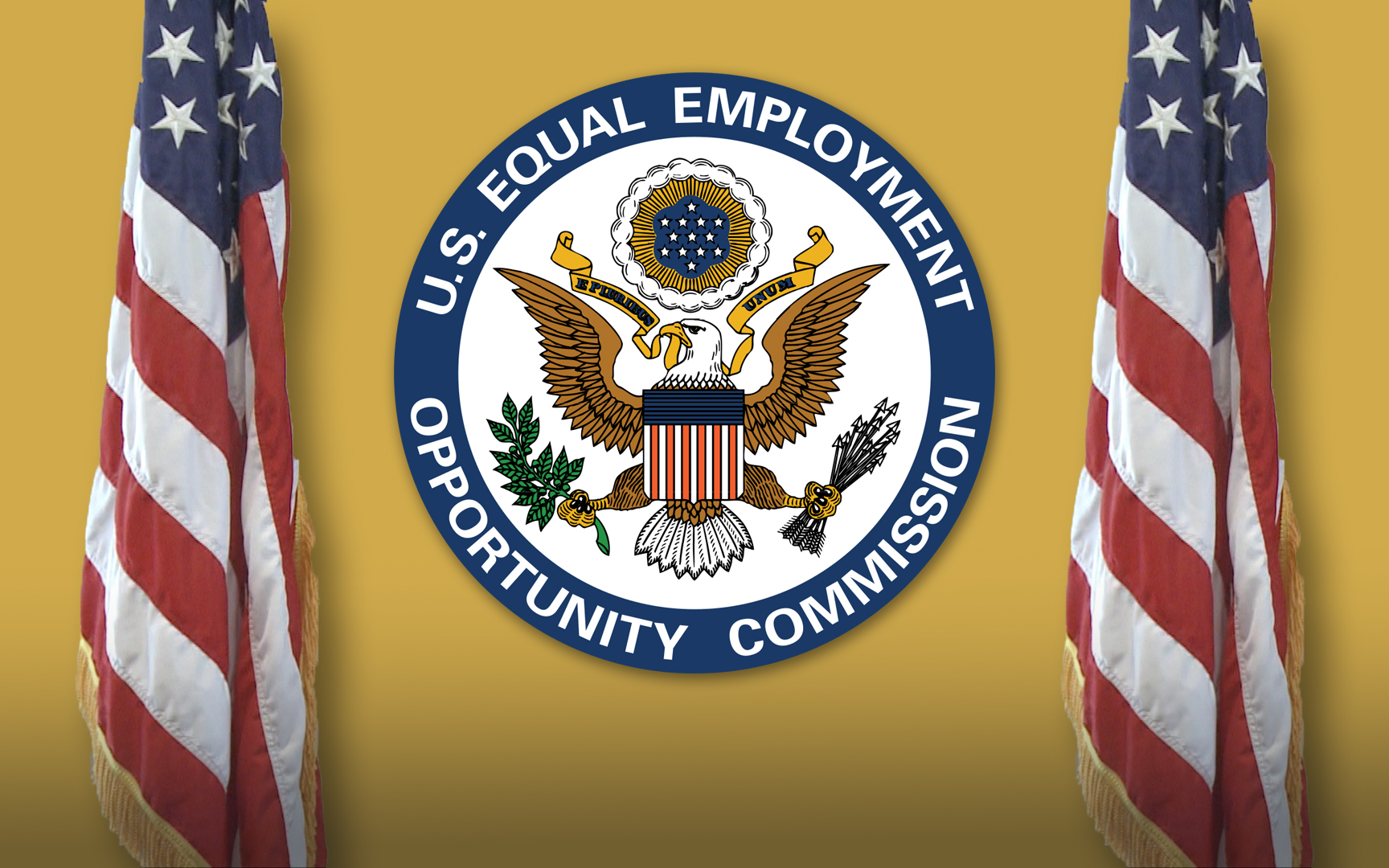




















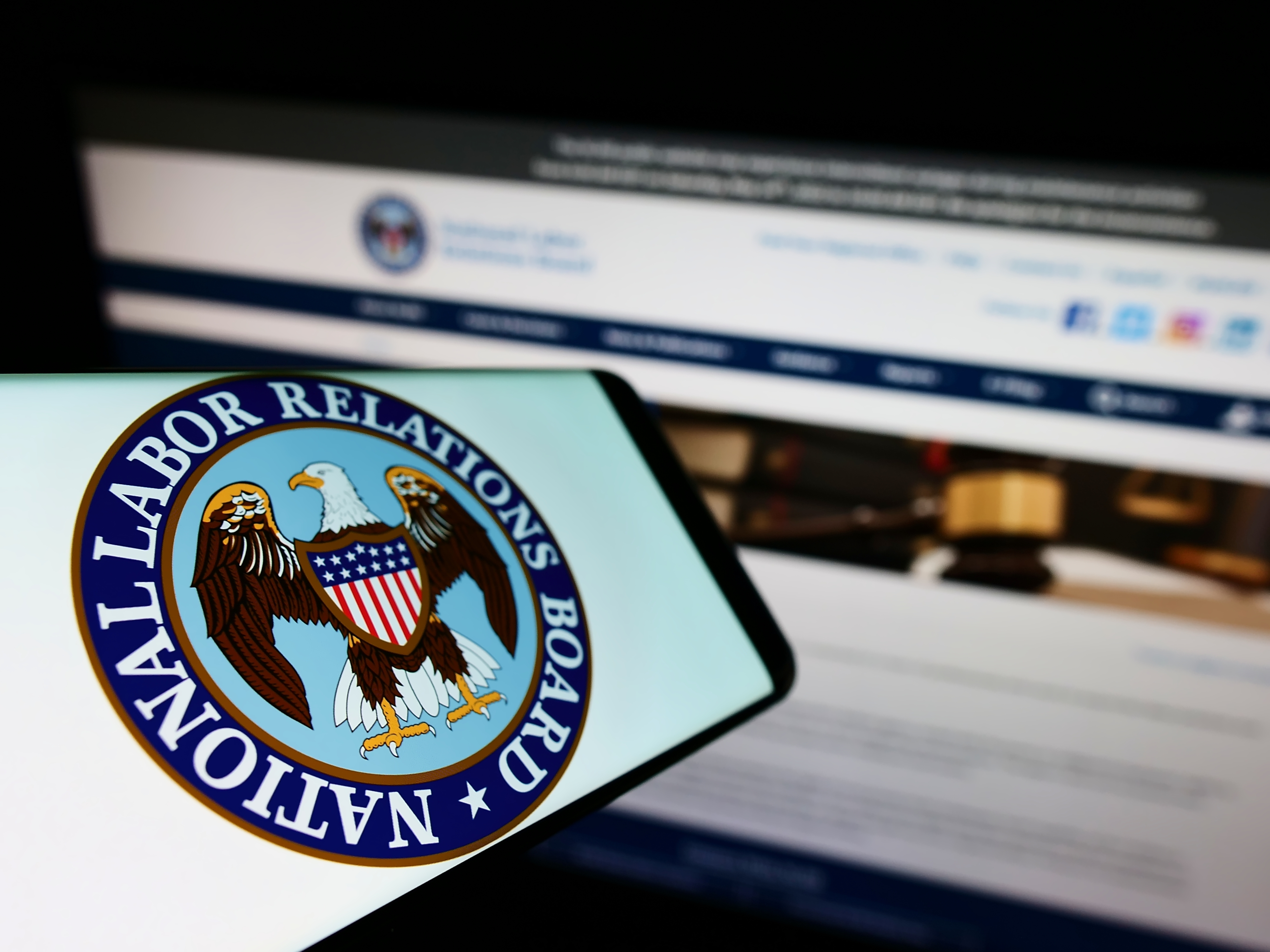

Learn more
Day 102: May 1
It’s official: Trump DOL won’t enforce Biden independent contractor rule.
Day 102: May 1
The DOL will no longer apply the 2024 independent contractor final rule when analyzing whether a worker is an employee or independent contractor under the Fair Labor Standards Act (FLSA).
The Acting WHD administrator issues a Field Assistance Bulletin instructing DOL field staff to apply prior agency guidance in enforcement actions involving independent contractor status under the FLSA.
Additional Resources
Businesses Get a Break: DOL Won’t Enforce 2024 Independent Contractor Rule
No ‘X’ Marks: USCIS No Longer Issuing Documents with ‘X’ Gender


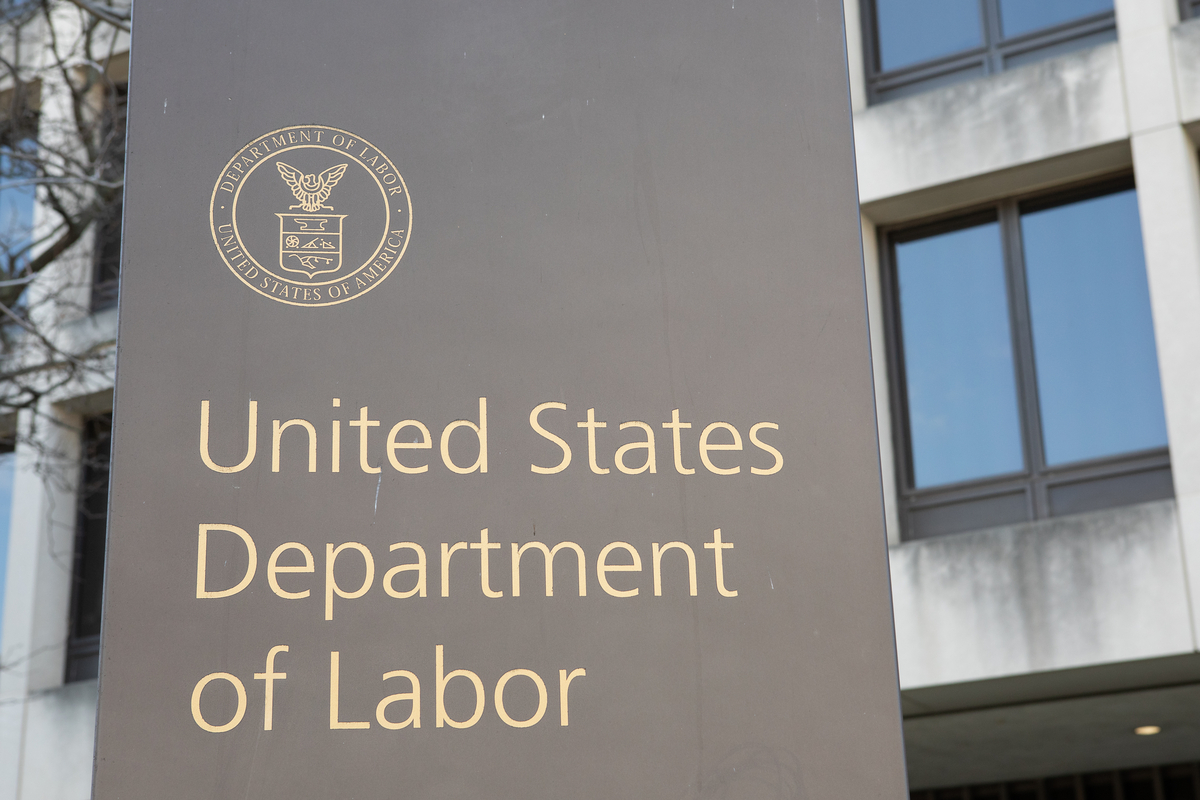






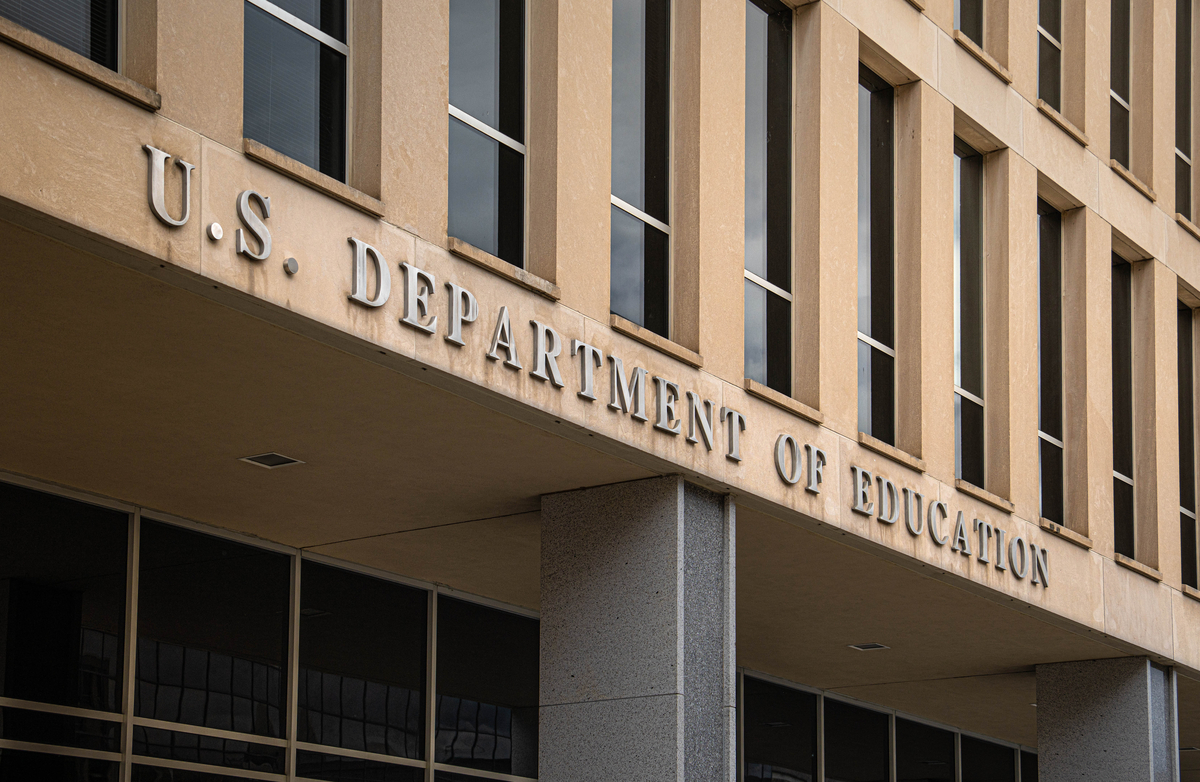
Learn more
Day 94: April 23
President Trump issues the “Restoring Equality of Opportunity and Meritocracy” EO.
Day 94: April 23
The EO is intended “to eliminate the use of disparate-impact liability in all contexts to the maximum degree possible to avoid violating the Constitution, Federal civil rights laws, and basic American ideals.” The EO:
Revokes the Presidential approvals of the parts of regulations that prohibit disparate impact discrimination under Title VI of the Civil Rights Act of 1964. �
Instructs federal agencies to deprioritize enforcement of all statutes and regulations to the extent they include disparate-impact liability.�
Instructs the attorney general to repeal or amend regulations that rely on a disparate impact theory �of liability.�
Instructs various federal agencies and agency heads to evaluate current programs, investigations, civil suits or positions that implicate disparate impact liability and “take appropriate action” consistent with the EO.�
Instructs the attorney general, in coordination with other agencies, to seek ways to limit the use of disparate impact theories of liability at the state level.
The EO’s most likely immediate impact is on employers facing agency action based on a disparate impact theory of liability.
Additional Resource(s)
Does Employer Disparate Impact Liability Still Exist? The Latest EO Pushes to Eliminate It

Learn more
Day 102: May 1
EEOC requests removal of the option for employers to voluntarily report non-binary data for their workforce is approved “without change.”




©2025 Jackson Lewis P.C. This material is provided for informational purposes only. It is not intended to constitute legal advice nor does it create a client-lawyer relationship between Jackson Lewis and any recipient. Recipients should consult with counsel before taking any actions based on the information contained within this material. This material may be considered attorney advertising in some jurisdictions. Prior results do not guarantee a similar outcome. Reproduction of this material in whole or in part is prohibited without the express prior written consent of Jackson Lewis P.C., a law firm focused on employment and labor law since 1958. Jackson Lewis P.C.’s 1,000+ attorneys located in major cities nationwide consistently identify and respond to new ways workplace law intersects business. We help employers develop proactive strategies, strong policies and business-oriented solutions to cultivate high-functioning workforces that are engaged and stable, and share our clients’ goals to emphasize belonging and respect for the contributions of every employee.
Learn more
Day 24: February 12
President Trump nominates David Keeling to helm OSHA.
Day 24: February 12
David Keeling’s nomination as Deputy Secretary of Labor for Occupational Safety and Health Administration is sent to the Senate. Keeling has previously overseen workplace safety at Amazon and UPS.
It remains to be seen whether the agency will continue to defend the Biden DOL’s OSHA Walkaround Rule in ongoing litigation.
Advance to February 13

Day 47: March 7
The Federal Trade Commission files motions to stay pending appeals of district court decisions vacating and enjoining the 2024 Non-Compete Clause Rule issued by the Biden Administration. The motions cite Chair Andrew Ferguson’s statement that the FTC is reconsidering whether to continue the appeals in defense of the rule.
The Fifth Circuit (on March 12) and Eleventh Circuit (on March 20) granted the FTC’s motions.
Advance to February 13

Learn more
Day 47: March 7
FTC seeks to stay appeals defending Biden noncompete rule.
Learn more
Day 58: March 18
President Trump fires Democratic FTC Commissioners.
Learn more
Day 52: March 12
Senate confirms Keith Sonderling as Deputy Secretary of Labor.
Day 52: March 12
The Senate approves President Trump’s nomination of Keith Sonderling to serve as Deputy Labor Secretary. Sonderling most recently was an EEOC Commissioner, in which capacity he joined Acting EEOC Chair Lucas in opposing the EEOC’s Pregnant Workers Fairness Act final rule and Enforcement Guidance on Harassment in the Workplace. Sonderling served as Acting Administrator of the DOL’s Wage and Hour Division during the first Trump Administration.
Employer Reactions to Federal Funding Freeze Could Have WARN Act Consequences


Day 58: March 18
President Trump fires the FTC’s Democratic Commissioners, Alvaro Bedoya and Rebecca Kelly Slaughter, leaving the FTC with just two Republican Commissioners. While the president’s authority to fire the commissioners immediately prompted a legal challenge, FTC Chair Andrew Ferguson issued a statement announcing he “has no doubt” that President Trump has the constitutional authority to remove commissioners.
Employer Reactions to Federal Funding Freeze Could Have WARN Act Consequences






Learn more
Day 81: April 10
Mark Meador is confirmed as an FTC Commissioner.
Day 81: April 10
The Senate confirms Mark Meador as an FTC Commissioner to a term that will expire on September 25, 2031. Meador previously worked at the Heritage Foundation Tech Policy Center as Deputy Chief Counsel for Antitrust and Competition Policy for Sen. Mike Lee (R-Utah) and as a trial attorney in the DOJ’s Antitrust Division during Trump’s first term. Meador’s confirmation brings the FTC to three Republican members, and two commissioner vacancies following President Trump’s March firing of the sitting Democratic commissioners.

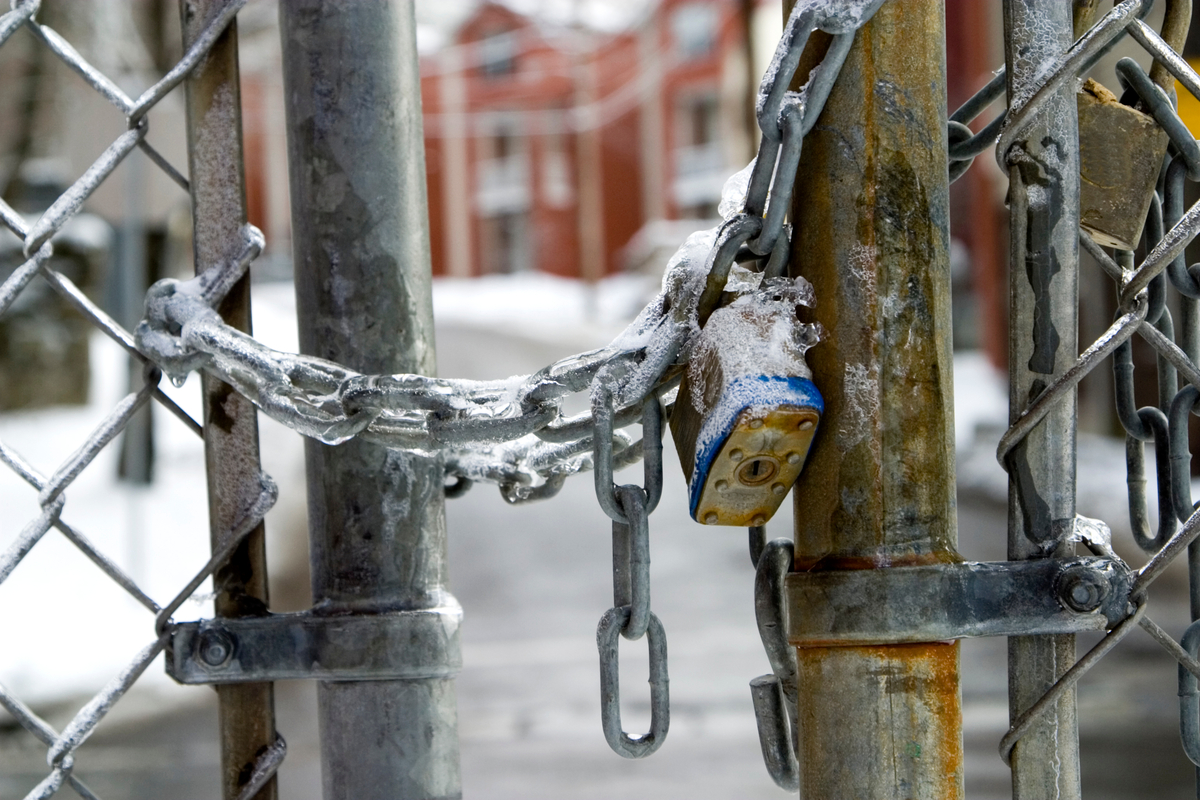


Learn more
Day 1: January 20
Within hours of his inauguration, the president signs multiple EOs, including “Initial Rescissions of Harmful Executive Orders and Actions” and “Defending Women from Gender Ideology Extremism and Restoring Biological Truth to the Federal Government.”
Day 1: January 20
Initial Rescissions of Harmful Executive Orders and Actions (EO 14148) revokes 78 Biden-era EOs and actions addressing issues related to DEI, pay transparency, COVID-19 and more. The rescinded EOs include:
EO 13988: Preventing and Combating Discrimination on the Basis of Gender Identity or Sexual Orientation �
EO 13985: Advancing Racial Equity and Support for Underserved Communities Through the Federal Government �
EO 14091: Further Advancing Racial Equity and Support for Underserved Communities Through the Federal Government�
EO 14069: Advancing Economy, Efficiency, and Effectiveness in Federal Contracting by Promoting Pay Equity and Transparency�
EO 14099: Moving Beyond COVID-19 Vaccination Requirements for Federal Workers�
EO 14020: Establishment of the White House Gender Policy Council �
EO 14055: Nondisplacement of Qualified Workers Under Service Contracts
EO 14168: Defending Women from Gender Ideology Extremism and Restoring Biological Truth to the Federal Government
Additional Resource(s)
BREAKING NEWS: President Trump Revokes a Long List of Biden Executive Orders
New Presidential EO Says Federal Government Recognizes ‘Two Sexes’ Only
BREAKING NEWS: President Trump Revokes a Long List of Biden Executive Orders
New Presidential EO Says Federal Government Recognizes ‘Two Sexes’ Only



Learn more
Day 94: April 23
DOL says it will reconsider the 2024 final rule raising the FLSA salary level for “white-collar” exemptions.

Learn more
Day 120: May 19
DOJ announces Civil Rights Fraud Initiative.
Day 94: April 23
The EO directs the DoT to reinstate enforcement of the existing federal rule requiring English proficiency for drivers of commercial motor vehicles.
Although the English proficiency rule (49 C.F.R. 391.11(b)(2)) is part of the minimum qualifications for drivers of commercial motor vehicles operating in interstate commerce, with certain limited exceptions, it has previously been interpreted as not requiring drivers who are found only in violation of the rule to be taken out of service. The EO directs that the “Secretary of Transportation [and] the Administrator of the FMCSA … shall take all … actions, consistent with applicable law,” to revise the current rules to ensure that a violation of the English proficiency requirement results in a truck driver being taken out-of-service.
Mandating English Proficiency for Truck Drivers: Trump EO Shifts Policy for Transportation Industry
Mandating English Proficiency for Truck Drivers: Trump EO Shifts Policy for Transportation Industry








Learn more
Day 102: May 1
It’s official: Trump DOL won’t enforce Biden independent contractor rule.
Learn more
Day 99: April 28
President Trump signs the “Enforcing Commonsense Rules of the Road for America’s Truck Drivers” EO.
Learn more
Day 79: April 8
DOL hits the brakes on defense of Biden-era independent contractor rule.
Learn more
Day 131: May 30
DOL signals it will review Biden-era Davis Bacon Rule updates.
Day 79: April 8
DOL
The DOL seeks to stay the litigation challenging the 2024 Independent Contractor Rule, including Frisard’s Transp. LLC v. United States DOL, No. 24-30223, which is pending in the Fifth Circuit. On April 8, the appeals court places the case on hold after the DOL submitted a status report noting it “intends to reconsider the 2024 Rule at issue in this litigation, including whether to issue a notice of proposed rulemaking rescinding the regulation.”
Additional Resource(s)
Employers Still Need to Abide 2024 Independent Contractor Rule Despite DOL Hints of Dropping It

Day 99: April 28
The EO directs the DOT to reinstate enforcement of the existing federal rule requiring English proficiency for drivers of commercial motor vehicles.
Although the English proficiency rule (49 C.F.R. 391.11(b)(2)) is part of the minimum qualifications for drivers of commercial motor vehicles operating in interstate commerce, with certain limited exceptions, it has previously been interpreted as not requiring drivers who are found only in violation of the rule to be taken out of service. The EO directs that the “Secretary of Transportation [and] the Administrator of the FMCSA … shall take all … actions, consistent with applicable law,” to revise the current rules to ensure that a violation of the English proficiency requirement results in a truck driver being taken out-of-service.
Additional Resource(s)
Mandating English Proficiency for Truck Drivers: Trump EO Shifts Policy for Transportation Industry

Day 102: May 1
The DOL will no longer apply the 2024 independent contractor final rule when analyzing whether a worker is an employee or independent contractor under the Fair Labor Standards Act (FLSA).
The Acting WHD administrator issues a Field Assistance Bulletin instructing DOL field staff to apply prior agency guidance in enforcement actions involving independent contractor status under the FLSA.
Additional Resource(s)
Businesses Get a Break: DOL Won’t Enforce 2024 Independent Contractor Rule

Day 131: May 30
In two ongoing lawsuits challenging several provisions of the DOL’s sweeping 2024 Davis Bacon Act rule changes, the DOL asks for a litigation stay, saying the additional time will allow them to reconsider the regulation and “may obviate the need for additional litigation.”
Additional Resource(s)
Court Enjoins Key Provisions of Davis-Bacon Prevailing Wage Final Rule for Construction Contractors
















Learn more
Day 102: May 1
EEOC requests removal of the option for employers to voluntarily report non-binary data for their workforce is approved “without change.”
Learn more
Day 5: January 24
Acting U.S. OFCCP Secretary Vincent Micone orders OFCCP employees to stop all related enforcement activity.
Learn more
Day 4: January 23
OFCCP issues its first official agency communication under the current administration, acknowledging President Trump’s revocation of EO 11246.
Learn more
Day 86: April 15
Ten former DOL officials send an open letter to federal contractors; EEOC makes bid to remove voluntary non-binary reporting.
Learn more
Day 64: March 24
DOL appoints Catherine Eschbach as Director of OFCCP, taking over for Acting Director Michael Schloss; Jonathan Snare is nominated to serve on hollowed-out OSHRC.

Learn more
Day 131: May 30
DOL signals it will review Biden-era Davis Bacon Rule updates.
Day 4: January 23
The OFCCP’s public statement notes that, for 90 days, contractors may continue to adhere to the regulatory scheme in place prior to the signing of the EO.
The OFCCP confirms that statutory requirements under Section 503 of the Rehabilitation Act and VEVRAA remain in effect, and that information about the agency’s “current activities will be forthcoming in the upcoming weeks.”
Additional Resource(s)
OFCCP Makes First Public Statement Following Revocation of Executive Order 11246

Day 5: January 24
Acting Secretary Micone’s order is in response to President Trump’s Day 2 EO revoking Johnson-era federal contractor affirmative action obligations. Specifically, the order instructs OFCCP employees to:
“Cease and desist all investigative and enforcement activity under the rescinded Executive Order 11246 and the regulations promulgated under it. This includes all pending cases, conciliation agreements, investigations, complaints, and any other enforcement-related or investigative activity.”
“Notify all regulated parties with impacted open reviews or investigations by January 31, 2025, that the EO 11246 component of the review or investigation has been closed and the Section 503 and VEVRAA components of the review or investigation are being held in abeyance pending further guidance.”
Additional Resource(s)
OFCCP Ordered to Stop All Enforcement Activity and Close Open Audits Under Revoked Executive Order 11246

Day 102: May 1
The OMB approves the EEOC’s request to remove the option for employers to voluntarily disclose non-binary data for EEO-1 reporting. The EEOC made this request for a “non-substantive change” in response to President Trump’s EO 14168, which recognizes only two sexes — male and female (see Day 86).
Additional Resource(s)
EEOC Submits Request to Eliminate Optional Disclosure of Non-Binary Data for EEO-1 Reporting

Day 121: May 20
The EO directs the DoT to reinstate enforcement of the existing federal rule requiring English proficiency for drivers of commercial motor vehicles.
Although the English proficiency rule (49 C.F.R. 391.11(b)(2)) is part of the minimum qualifications for drivers of commercial motor vehicles operating in interstate commerce, with certain limited exceptions, it has previously been interpreted as not requiring drivers who are found only in violation of the rule to be taken out of service. The EO directs that the “Secretary of Transportation [and] the Administrator of the FMCSA … shall take all … actions, consistent with applicable law,” to revise the current rules to ensure that a violation of the English proficiency requirement results in a truck driver being taken out-of-service.
Additional Resources
BREAKING NEWS: EEO-1 Data Collection Opens

Day 86: April 15
Letter�The 14-page letter, a response to EO 14173 and newly appointed OFCCP Director Catherine Eschbach’s recent statements, aims to “help federal contractors and other employers navigate this complex environment, providing clarity about their options and obligations under the law.”
It outlines how the current administration’s actions contravene established law and explains how compliance with the now-rescinded EO 11246 did not require the unlawful use of preferences or quotas.
The former officials, who include former EEOC Commissioner and past OFCCP Director Jenny Yang, describe how continued proactive practices, including self-assessments and data analysis, remain lawful and are essential to prevent discrimination.
Reporting�In past years, the EEO-1 reporting instructions allowed respondents to provide non-binary data in a narrative form in the comment box of the report. EEOC believes this voluntary option must be removed to comply with EO 14168, Defending Women From Gender Ideology Extremism and Restoring Biological Truth to the Federal Government. (Return to Day 1).
See Day 102.
Additional Resource(s)
Former U.S. Department of Labor Officials Pen Open Letter to Contractor Community Addressing Executive Order 14173 and the Current Administration's Stance on Diversity, Equity and Inclusion
EEOC Submits Request to Eliminate Optional Disclosure of Non-Binary Data for EEO-1 Reporting | Affirmative Action & OFCCP Law Advisor

Day 64: March 24
Eschbach
Director Eschbach comes from the private sector, where she focused on complex appellate issues as an attorney with the firm Morgan, Lewis & Bockius LLP.
In an email to staff, Eschbach says the agency will review previously submitted federal contractor affirmative action plans for evidence of discriminatory employment practices. She writes, “most of what OFCCP had been doing was out of step, if not flat out contradictory, to our country’s laws, and all reform options are on the table.”
Snare
Previously nominated to serve as Deputy Solicitor of Labor on February 24, President Trump taps Jonathan Snare to serve on the Occupational Safety and Health Review Commission. The independent OSHRC hears employer appeals of OSHA citations following decisions of OSHRC administrative law judges. However, the body had been without a quorum since April 2023, and the term of OSHRC Chair Cynthia Attwood, the last remaining commissioner, was set to expire on April 27, 2025. Snare’s confirmation would leave one remaining opening to fill before the OSHRC can resume operations.
Additional Resource(s)
BREAKING NEWS: OFCCP to Revisit Previously Submitted Contractor Files

Day 131: May 30
In two ongoing lawsuits challenging several provisions of the DOL’s sweeping 2024 Davis Bacon Act rule changes, the DOL asks for a litigation stay, saying the additional time will allow them to reconsider the regulation and “may obviate the need for additional litigation.”
Additional Resource(s)
Court Enjoins Key Provisions of Davis-Bacon Prevailing Wage Final Rule for Construction Contractors

Learn more
Day 8: January 27
President Trump proposes federal �funding freeze, causing concerns about WARN consequences.
Learn more
Day 54: March 14
President Trump revokes former President Biden’s EO 14026 of April 27, 2021, “Increasing the Minimum Wage for Federal Contractors” (86 FR 22835).

Learn more
Day 59: March 19
DOJ withdraws 11 documents providing guidance to businesses on compliance with Title III of the Americans with Disabilities Act.


Learn more
Day 79: April 8
DOJ’s Data Transfer Rule, finalized Jan. 8, 2025, goes into effect.





Learn more
DOL says it will reconsider the 2024 final rule raising the FLSA salary level for “white-collar” exemptions.
Day 8: January 27
Employers facing potential employment actions due to a federal funding freeze must be mindful of the federal WARN Act and its state-level counterparts. These laws generally require advance notice, typically 60 days federally and up to 90 days in some states, before mass layoffs or plant closures. While certain exceptions to the WARN Act may apply, employers must act swiftly and carefully to meet the notification requirements necessary to invoke those exceptions. Given the complexity and potential liability involved, employers are strongly recommended to consult with attorneys experienced in WARN Act compliance before proceeding with any workforce reductions.
Additional Resource(s)
Employer Reactions to Federal Funding Freeze Could Have WARN Act Consequences

Day 54: March 14
President Trump’s EO 14236, “Additional Rescissions of Harmful Executive Orders and Actions,” (90 FR 13037), rescinds former President Biden’s EO increasing the minimum wage rate for employees working on federal contracts. Pursuant to section 2(d) of EO 14236, the DOL is no longer enforcing EO 14026 or the implementing rule (29 CFR part 23) and will take steps, including rescinding 29 CFR part 23, to implement and effectuate the revocation of EO 14026.
The Trump EO comes amid a circuit split over Biden EO 14026. On Feb. 4, 2025, the U.S. Court of Appeals for the Fifth Circuit reversed a Texas federal court’s decision that invalidated the EO increasing the hourly minimum wage for employees of federal contractors. The appeals court upheld the minimum wage mandate, concluding it was a valid exercise of presidential authority. State of Texas v. Trump, 2025 U.S. App. LEXIS 2485 (Feb. 4, 2025). The decision is contrary to the Ninth Circuit’s Nov. 5, 2024, decision in State of Nebraska, et al. v. Julie A. Su, et al., which held that President Biden exceeded his authority under the Procurement Act when he issued EO 14026.
Additional Resource(s)
Uncertainty for Federal Contractors: Circuits Split as Fifth Circuit Upholds Minimum Wage Mandate
Trump Revokes Biden Federal Contractor Minimum Wage Mandate: What to Expect Next�

Day 59: March 19
Intended to “streamline” ADA compliance resources for businesses consistent with the “Delivering Emergency Price Relief for American Families and Defeating the Cost-of-Living Crisis” EO, the DOJ Guidance sets forth how the agency interprets certain issues addressed by Title III of the ADA.
Although the guidance has been withdrawn, the law remains the same. Title III requires that covered businesses must provide people with disabilities with an equal opportunity to access the goods or services that they offer. Additionally, the withdrawn guidance was either prepared before the most recent Title III regulations went into effect in 2011 or deals with COVID-19.
Consequently, we do not expect the DOJ’s withdrawal of the guidance to have a significant impact on �business operations.
Additional Resource(s)
DOJ Withdraws 11 Pieces of Americans with Disabilities Act Title III Guidance: What Covered Businesses Need to Know

Day 79: April 8
The rule prohibits U.S. companies from selling, leasing, or otherwise making sensitive data available to certain third parties located in or associated with six designated “countries of concern”: China, including Hong Kong and Macau, Cuba, Iran, North Korea, Russia, and Venezuela. This includes entering into employment, vendor, and investment agreements that will involve access to sensitive data by “covered persons,” which is broadly defined and borrows from the Department of the Treasury, Office of Foreign Assets Control’s “50 percent rule”.
Additional Resource(s)
DOJ New Data Transfer Rule Impacts Hiring, Business Ops + Vendor Mgmt: Time to Review Your Privacy + Cybersecurity Program

Day 94: April 23 (cont’d)
District courts had enjoined the 2024 final rule, but the Biden DOL appealed to the Fifth Circuit. The DOL filed a motion for a stay in the litigation, and told the court of appeals it is reviewing the rule, which raised the minimum salary threshold for application of the FLSA’s executive, administrative, and professional exemptions. Also pending: a petition for certiorari asking the Supreme Court to review the Fifth Circuit’s decision in Mayfield v. United States DOL (24-1064), which rejected plaintiffs’ contention that the DOL lacked authority to issue any minimum salary requirement for application of the exemption.
Additional Resources
Reprieve Extended? DOL to Halt Efforts to Restore 2024 Minimum Salary Rule for Exempt Employees
Fifth Circuit Holds DOL Can Set Salary Floor for White-Collar Exemptions



Learn more
Day 73: April 2
USCIS returns to issuing documents identifying individuals as either male or female.
Learn more
Day 57: March 17
Two-fer: EEOC Acting Chair Lucas issues a statement about antisemitism in on-campus workspaces and sends DEI-related RFIs to 20 law firms.



Learn more
Day 86: April 15
Ten former DOL officials send an open letter to federal contractors; EEOC makes bid to remove voluntary non-binary reporting.
Day 57: March 17
Universities and Colleges �The statement refers to the increase in antisemitic bias, conduct and harassment on campuses since the Hamas terror attacks in Israel on Oct. 7, 2023. The EEOC’s new focus is buoyed by President Trump’s EO 14188, “Additional Measures to Combat Anti-Semitism,” a “government-wide effort to combat antisemitism.”
Lucas states that the antisemitic conduct was made “[u]nder the guise of promoting free speech” and was in fact “often in violation of the universities’ own time, place and manner policies….” She promises to “hold universities and colleges accountable,” although she does not identify what measures will be specifically undertaken to enforce this promise.
Law Firms�Lucas’ requests for information to 20 law firms seek detailed information about a variety of DEI topics, highlighting the DEI areas of concern for the EEOC. On April 11, the EEOC announced it reached settlements with four law firms. “The firms chose to voluntarily resolve matters with the EEOC, without admission of liability, to avoid an extended dispute,” the Commission announced.
On the heels of Lucas’ action, a coalition of Republican attorney generals led by Texas Attorney General Ken Paxton on April 3 issued their own request for information from the 20 firms, noting that the potential violations referenced in the Lucas letter could also violate state laws.
Additional Resource(s)
Attending to EEOC’s New Workplace Focus: Antisemitism on College Campuses �Review of Perkins Coie LLP’s Compliance with Title VII of the Civil Rights Act of 1964 (EEOC Letter)
Attending to EEOC’s New Workplace Focus: Antisemitism on College Campuses �Requests for Information

Day 73: April 2
Effective April 2, 2025, all documents issued by U.S. Citizenship and Immigration Services will identify individuals as either male or female. Previously, USCIS-issued documents also listed “X” as a gender.
This policy change is a direct response to President Trump’s Jan. 20, 2025, EO vowing to “defend women’s rights and protect freedom of conscience by using clear and accurate language and policies that recognize women are biologically female, and men are biologically male.” In this EO, Trump called for the secretary of homeland security to issue identification documents reflecting the holder’s sex as either male or female only.
Additional Resource(s)
No ‘X’ Marks: USCIS No Longer Issuing Documents with ‘X’ Gender
No ‘X’ Marks: USCIS No Longer Issuing Documents with ‘X’ Gender

Day 86: April 15
Letter�The 14-page letter, a response to EO 14173 and newly appointed OFCCP Director Catherine Eschbach’s recent statements, aims to “help federal contractors and other employers navigate this complex environment, providing clarity about their options and obligations under the law.”
It outlines how the current administration’s actions contravene established law and explains how compliance with the now-rescinded EO 11246 did not require the unlawful use of preferences or quotas.
The former officials, which include former EEOC Commissioner and past OFCCP Director Jenny Yang, describe how continued proactive practices, including self-assessments and data analysis, remain lawful and are essential to prevent discrimination.
Reporting�In past years, the EEO-1 reporting instructions allowed respondents to provide non-binary data in a narrative form in the comment box of the report. EEOC believes this voluntary option must be removed to comply with EO 14168, Defending Women From Gender Ideology Extremism and Restoring Biological Truth to the Federal Government. (See Day 1).
See Day 102.
Additional Resource(s)
Former U.S. Department of Labor Officials Pen Open Letter to Contractor Community Addressing Executive Order 14173 and the Current Administration's Stance on Diversity, Equity and Inclusion
EEOC Submits Request to Eliminate Optional Disclosure of Non-Binary Data for EEO-1 Reporting


Learn more
Day 57: March 17
Two-fer: EEOC Acting Chair Lucas issues a statement about antisemitism in on-campus workspaces and sends DEI-related RFIs to 20 law firms.
Day 57: March 17
Universities and Colleges �The statement refers to the increase in antisemitic bias, conduct and harassment on campuses since the Hamas terror attacks in Israel on Oct. 7, 2023. The EEOC’s new focus is buoyed by President Trump’s EO 14188, “Additional Measures to Combat Anti-Semitism,” a “government-wide effort to combat antisemitism.”
Lucas states that the antisemitic conduct was made “[u]nder the guise of promoting free speech” and was in fact “often in violation of the universities’ own time, place and manner policies….” She promises to “hold universities and colleges accountable,” although she does not identify what measures will be specifically undertaken to enforce this promise.
Law Firms�Lucas’ requests for information to 20 law firms seek detailed information about a variety of DEI topics, highlighting the DEI areas of concern for the EEOC. On April 11, the EEOC announced it reached settlements with four law firms. “The firms chose to voluntarily resolve matters with the EEOC, without admission of liability, to avoid an extended dispute,” the Commission announced.
On the heels of Lucas’ action, a coalition of Republican attorney generals led by Texas Attorney General Ken Paxton on April 3 issued their own request for information from the 20 firms, noting that the potential violations referenced in the Lucas letter could also violate state laws.
Additional Resource(s)
Attending to EEOC’s New Workplace Focus: Antisemitism on College Campuses �Requests for Information


























Learn more
Day 102: May 1
It’s official: Trump DOL won’t enforce Biden independent contractor rule.
Learn more
Day 99: April 28
President Trump signs the “Enforcing Commonsense Rules of the Road for America’s Truck Drivers” EO.
Learn more
Day 94: April 23
DOL says it will reconsider the 2024 final rule raising the FLSA salary level for “white-collar” exemptions.
Learn more
Day 86: April 15
Ten former DOL officials send an open letter to federal contractors; EEOC makes bid to remove voluntary non-binary reporting.
Learn more
Day 79: April 8
DOJ’s Data Transfer Rule, finalized Jan. 8, 2025, goes into effect; DOL hits the brakes on defense of Biden-era independent contractor rule.
Learn more
Day 73: April 2
USCIS returns to issuing documents identifying individuals as either male or female.
Learn more
DOJ withdraws 11 documents providing guidance to businesses on compliance with Title III of the Americans with Disabilities Act.
Learn more
Day 59: March 19
EEOC and DOJ issue two technical assistance documents on “illegal DEI.”
Learn more
Day 57: March 17
Two-fer: EEOC Acting Chair Lucas issues a statement about antisemitism in on-campus workspaces and sends DEI-related RFIs to 20 law firms.
Learn more
Day 54: March 14
President Trump revokes former President Biden’s EO 14026 of April 27, 2021, “Increasing the Minimum Wage for Federal Contractors” (86 FR 22835).
Learn more
Day 8: January 27
President Trump proposes federal �funding freeze, causing concerns about �WARN consequences.
Learn more
Immigration issues come home to roost for employers as President Trump signs multiple EOs designed to advance his immigration agenda, including Ending Birthright Citizenship; Enhanced Vetting; and Creating “Homeland Security Task Forces.”
DEI Timeline
Day 1: January 20
Within hours of his inauguration, the president signs multiple EOs, including “Initial Rescissions of Harmful Executive Orders and Actions” and “Defending Women from Gender Ideology Extremism and Restoring Biological Truth to the Federal Government.”


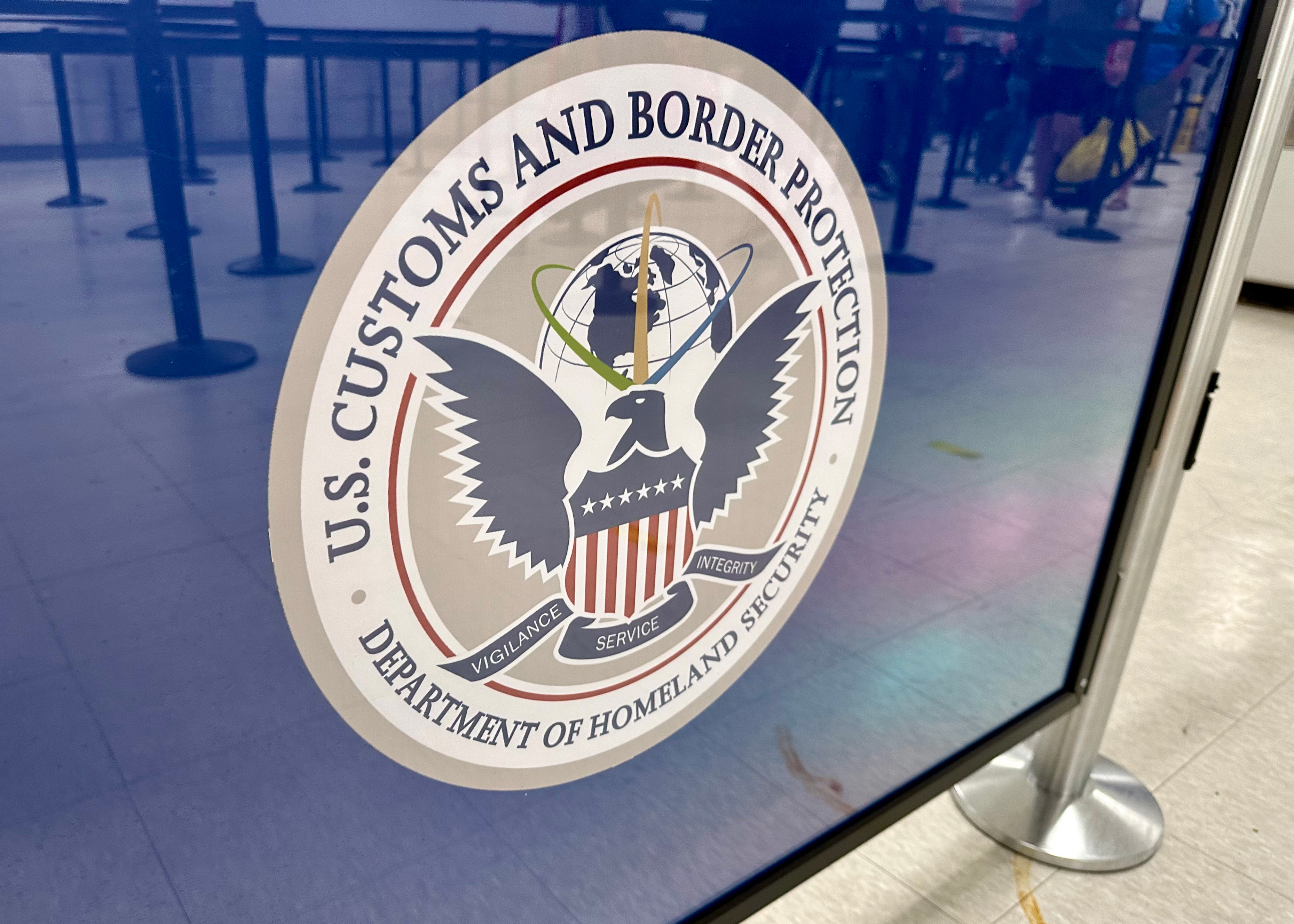
Immigration Timeline
Day 1: January 20
President Trump signs multiple EOs impacting immigration, including ones for ending birthright citizenship, enhanced vetting, and creating “Homeland Security Task Forces.”

Agency Timeline
Day 2: January 21
EEOC Commissioner Andrea Lucas is named Acting Chair of the Commission; Marvin Kaplan, who served as chair during the president’s first term, is tapped to helm NLRB.

OFCCP Timeline
Day 4: January 23
OFCCP issues its first official agency communication under the current administration, acknowledging President Trump’s revocation of EO 11246.
Education Timeline
Day 10: January 29
Educational institutions get schooled in “discriminatory equity ideology” as President Trump issues two new EOs.
Other Developments
Day 8: January 27
President Trump proposes federal �funding freeze, causing concerns about WARN consequences.
Benefits Timeline
Day 33: February 21
President Trump issues “America First Investment Policy” EO.
Transportation Timeline
Day 79: April 8
DOL hits the brakes on defense of Biden-era independent contractor rule.
Transportation
OFCCP

Kousisis v. United States �(No. 23-909)
See
See
Trump v. CASA Inc., Trump v. Washington, Trump v. New Jersey (No. 24a884)

Stanley v. City of Sanford, Florida (No. 23-997)
See

Energy and Utilities
EMD Sales Inc. v. Carrera �(No. 23-217)
See

Cunningham v. Cornell University (No. 23-1007)
See

Catholic Charities Bureau Inc. v. Wisconsin Labor & Industry Review Commission (No. 24-154)
See
Construction and Real Estate+
Ames v. Ohio Department of Youth Services �(No. 23-1039)
See
read more
The U.S. Supreme Court has been active again this year. Many of the cases impacting employers focused on defenses and procedural issues in litigation, making some cases easier to defend and others more challenging. The cases presented here shift procedural processes and alter perspectives on employee rights, both of which will affect employers for years to come.
SCOTUS 2024 – 2025
December
Hotels and Leisure+
A. J. T. v. Osseo Area Schools (No. 24-249)
See
A. J. T. v. Osseo Area Schools (No. 24-249)
Argued 04.28.25 | Decided 06.12.25
Question(s) Presented
Whether the ADA and Rehabilitation Act require students with disabilities to satisfy a different standard than a “bad faith or gross misjudgment” standard when seeking relief for discrimination relating to their education.
Decision
The Court held that student ADA and Rehabilitation Act claims should be subject to the same standards as in other settings and rejected a higher “bad faith or gross misjudgment” standard. The Supreme Court refused to address the further issue raised by the school district over what the standards should be and whether they should be the same regardless of whether the plaintiff was seeking damages or an injunction. These issues were not properly raised below and were not properly before the Supreme Court.
Additional Resource(s)
SCOTUS Sets Up Debate Over Standard in ADA and Rehabilitation Act Cases, Rejects Heightened Standard for Student Failure-to-Accommodate Claims









Learn more
Day 73: April 2
USCIS returns to issuing documents identifying individuals as either male or female.
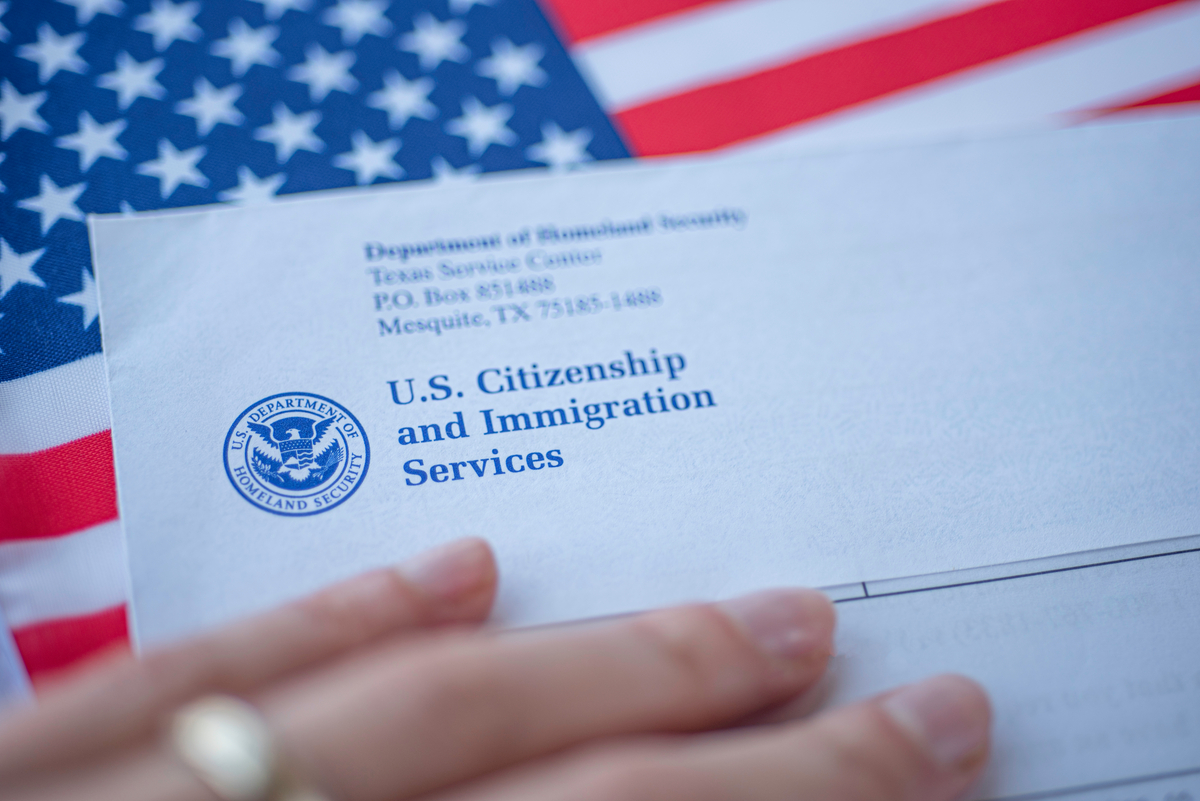

Day 73: April 2
Effective April 2, 2025, all documents issued by U.S. Citizenship and Immigration Services will identify individuals as either male or female. Previously, USCIS-issued documents also listed “X” as a gender.
This policy change is a direct response to President Trump’s Jan. 20, 2025, EO vowing to “defend women’s rights and protect freedom of conscience by using clear and accurate language and policies that recognize women are biologically female, and men are biologically male.” In this EO, Trump called for the secretary of homeland security to issue identification documents reflecting the holder’s sex as either male or female only.
Additional Resource(s)
No ‘X’ Marks: USCIS No Longer Issuing Documents with ‘X’ Gender












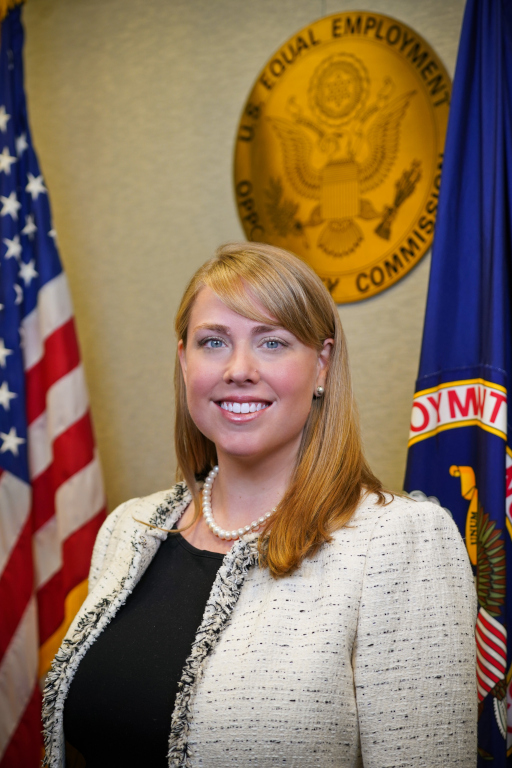
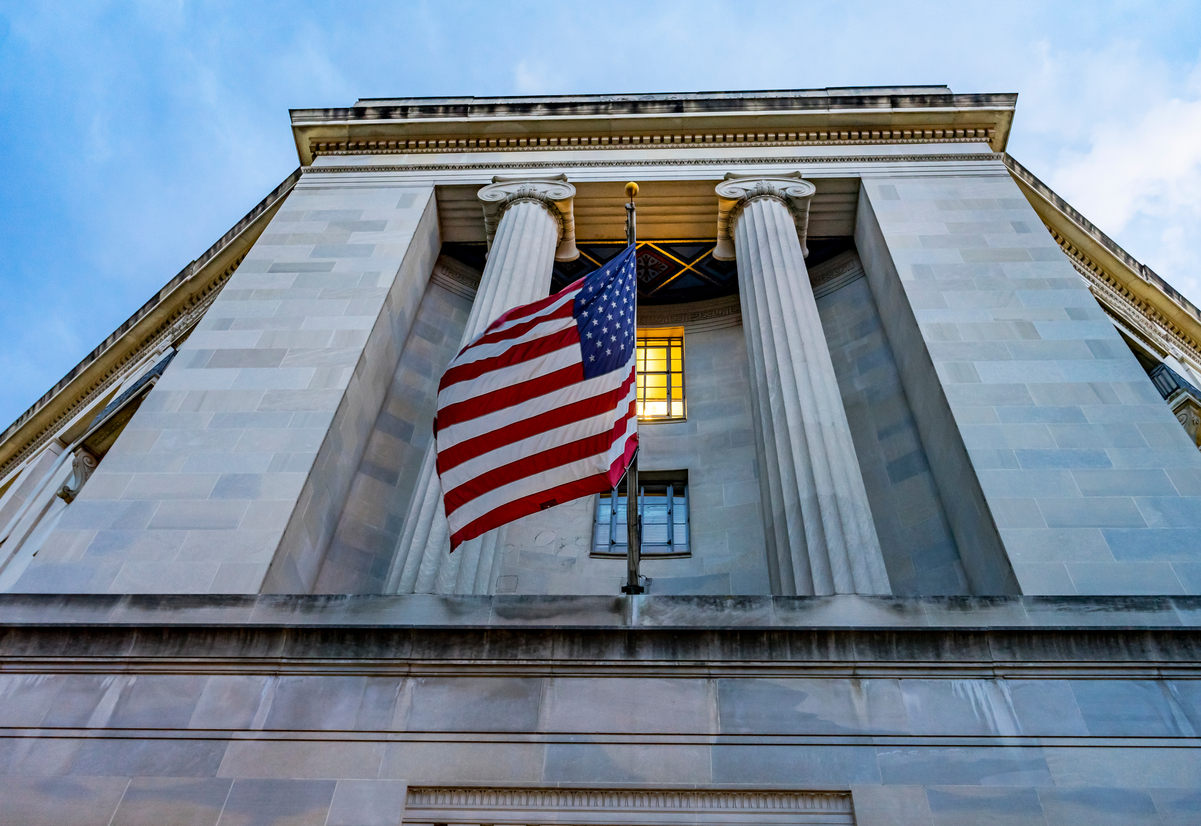
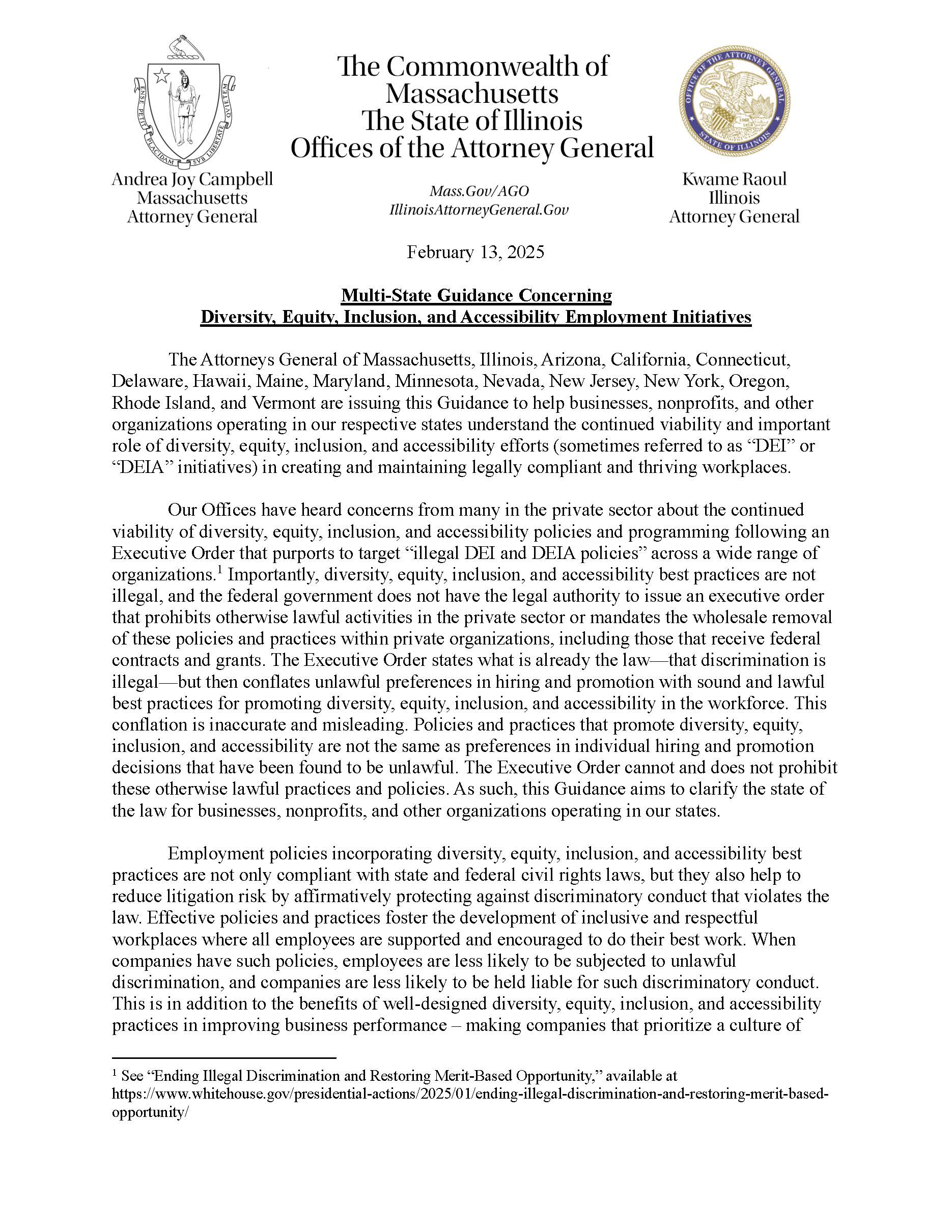





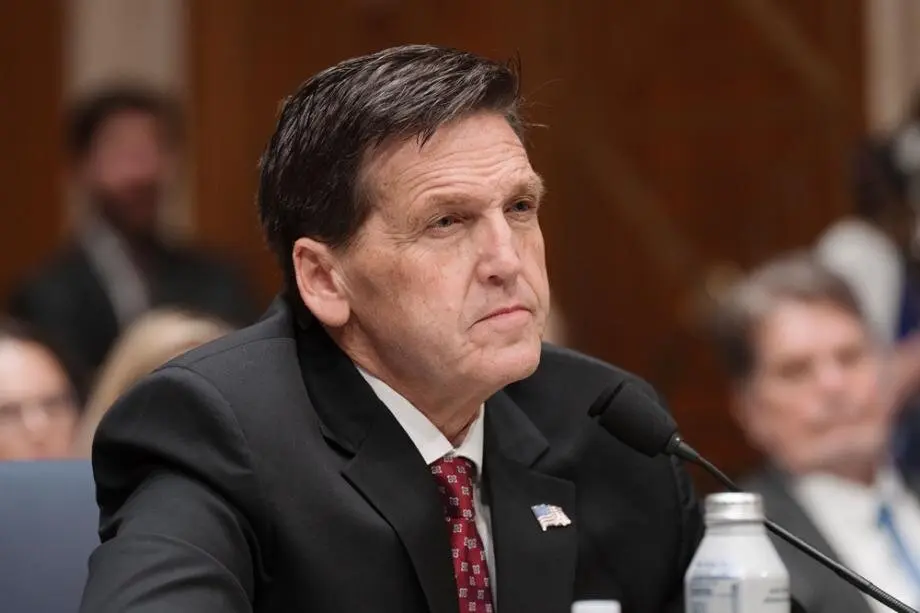
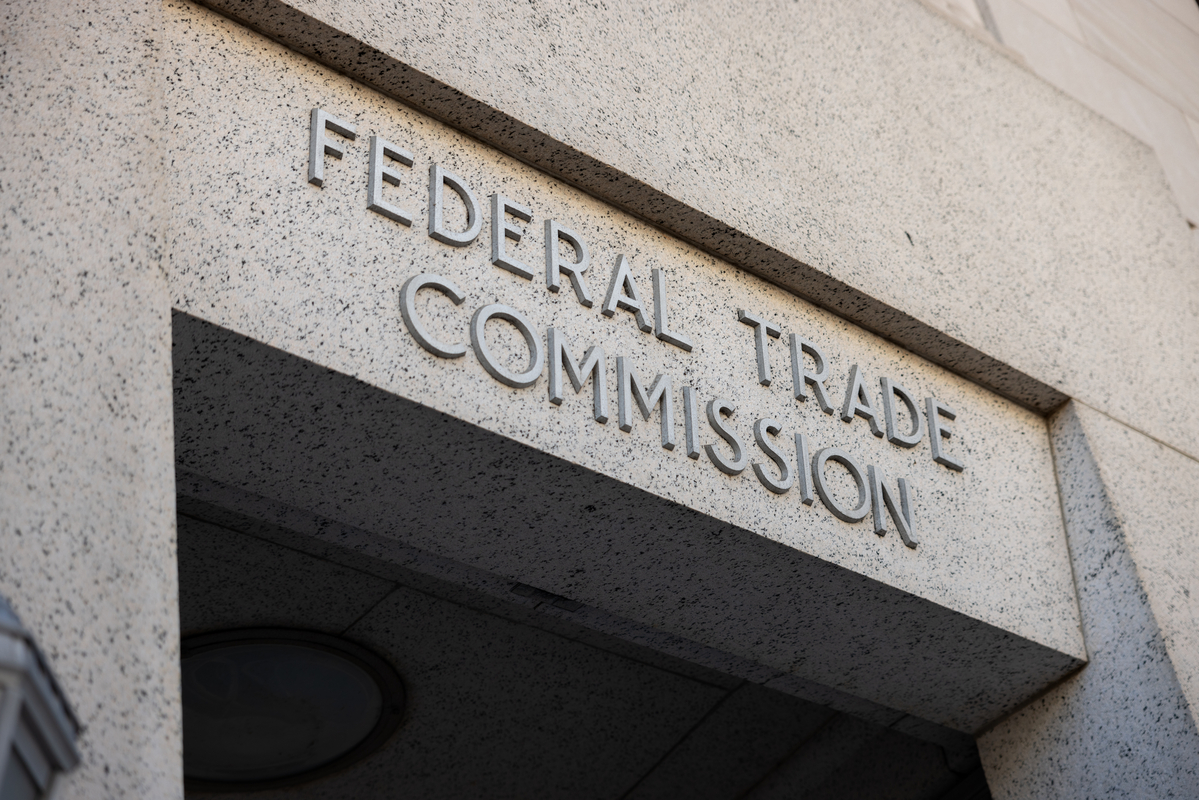

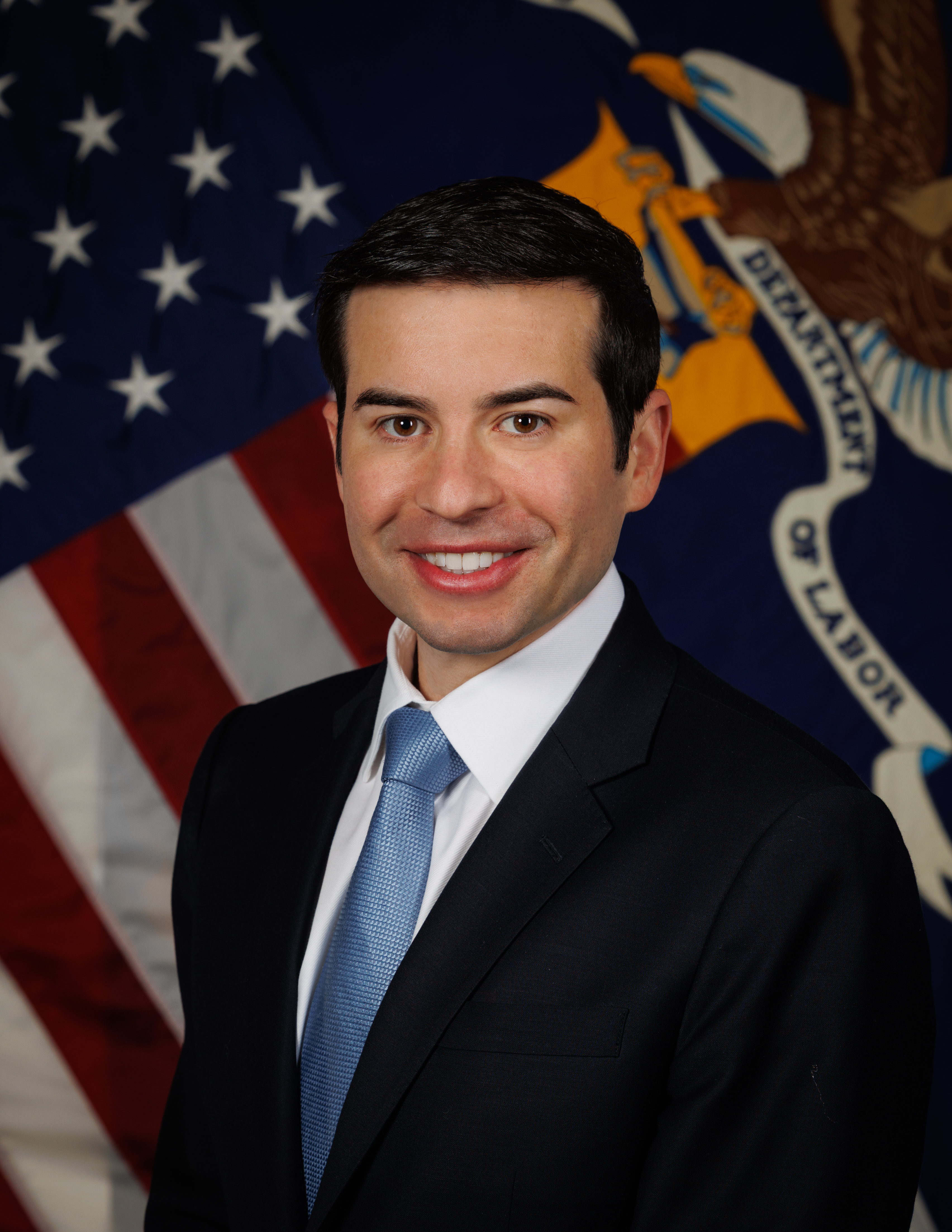


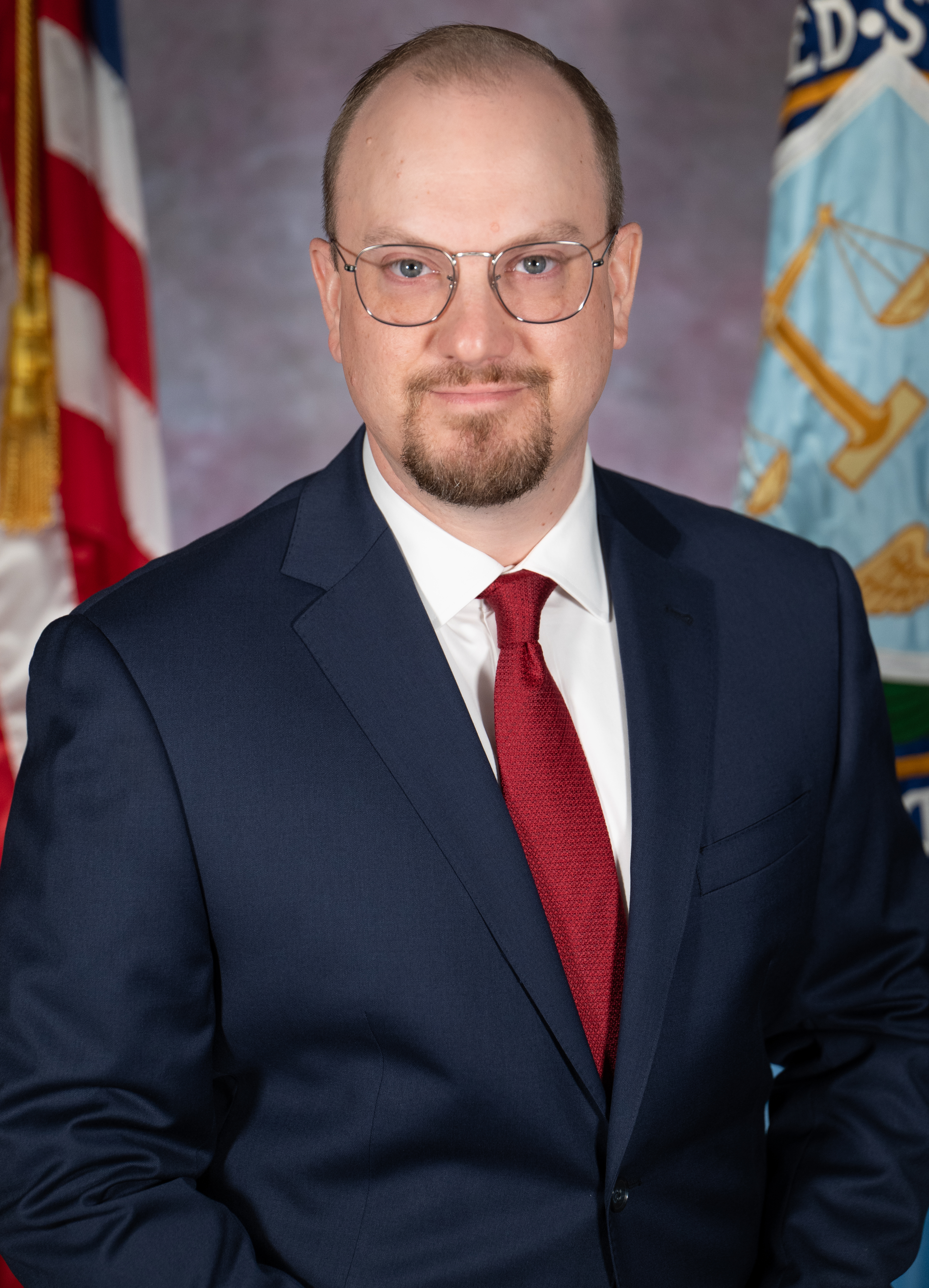
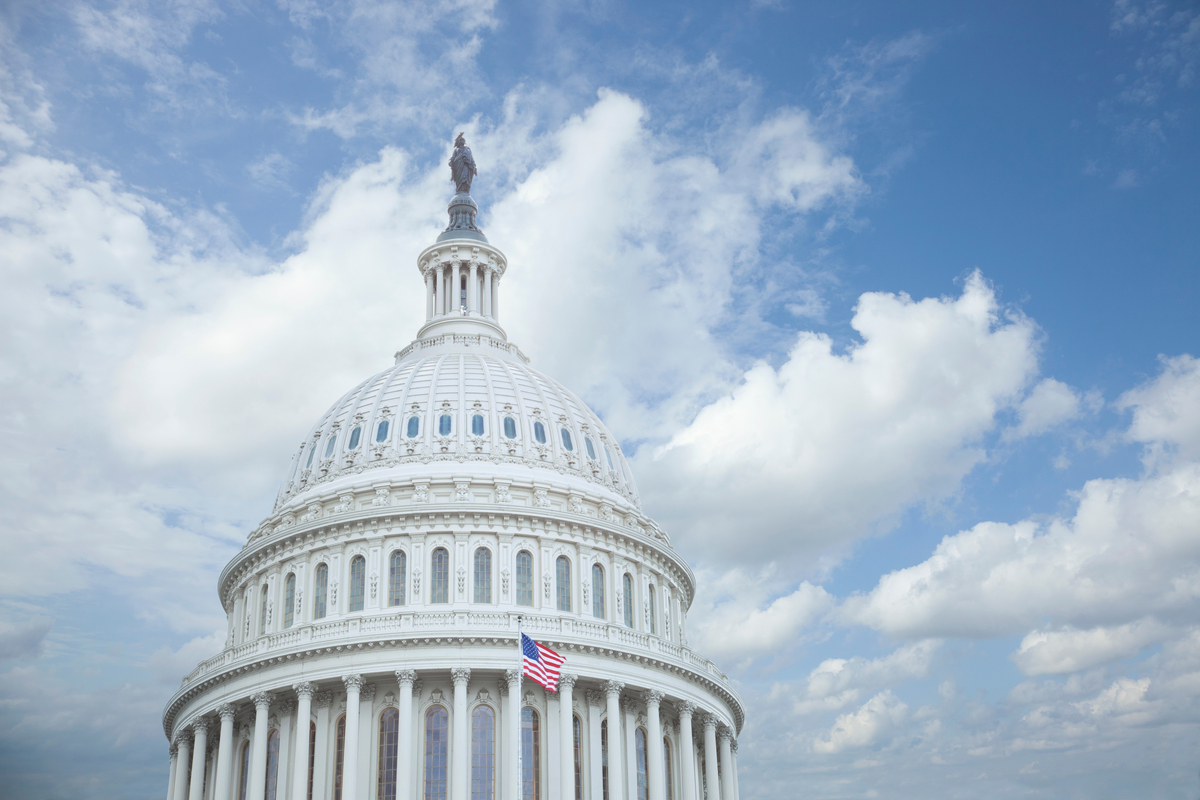
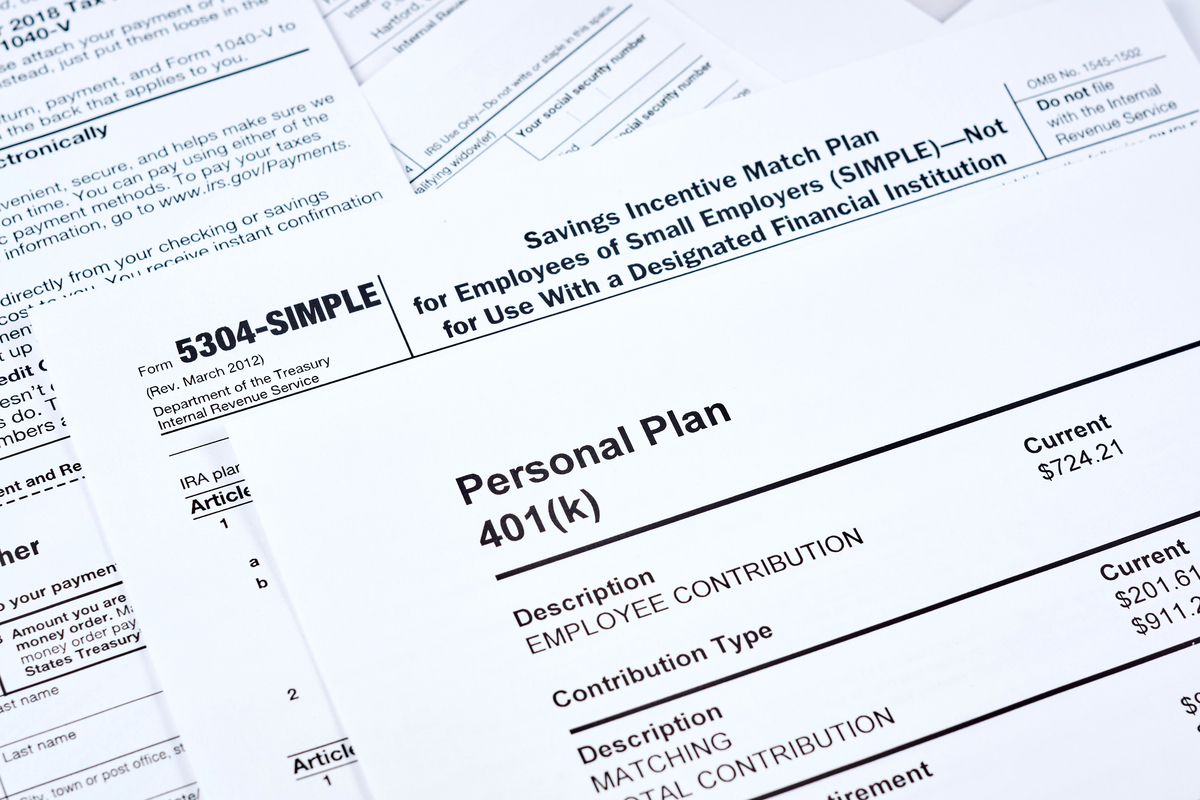
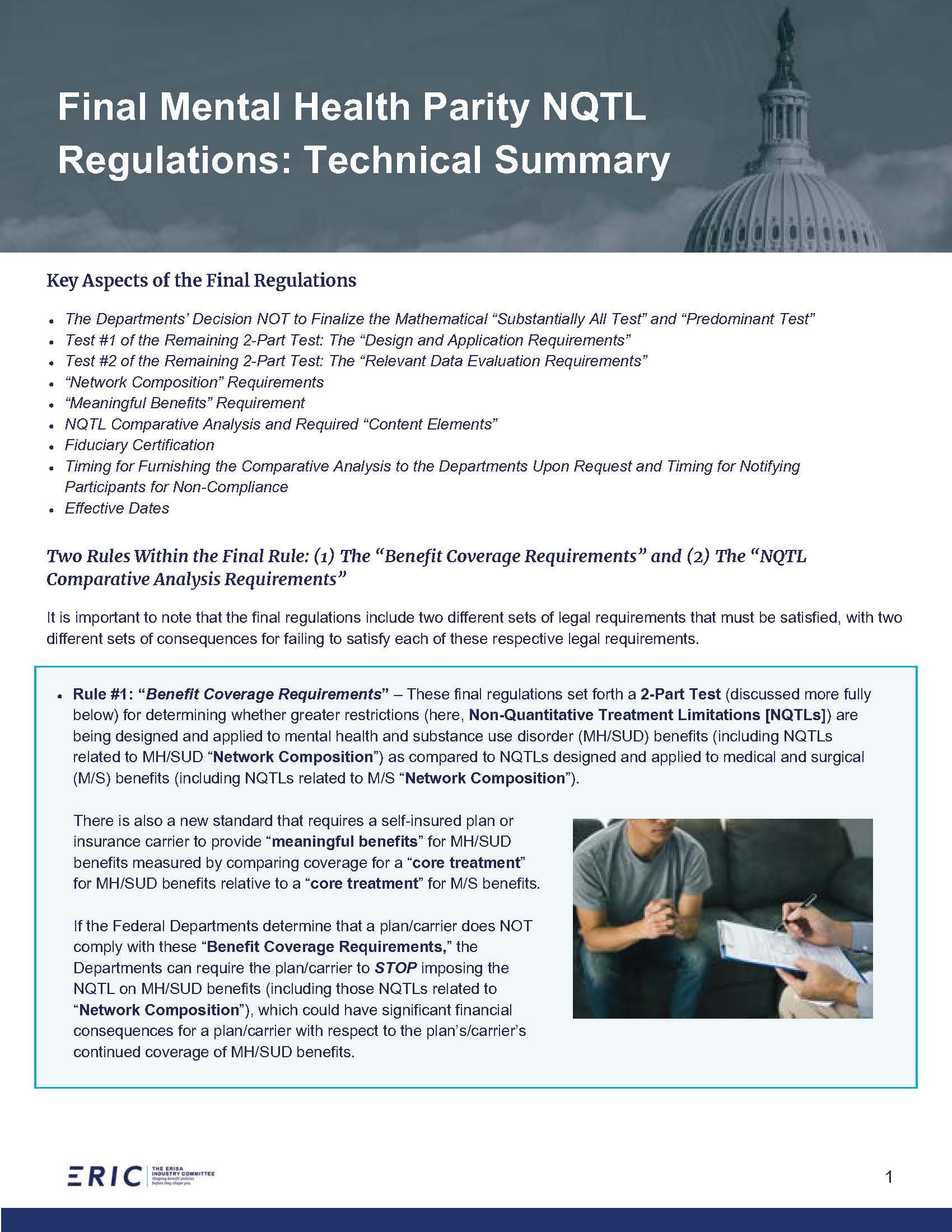






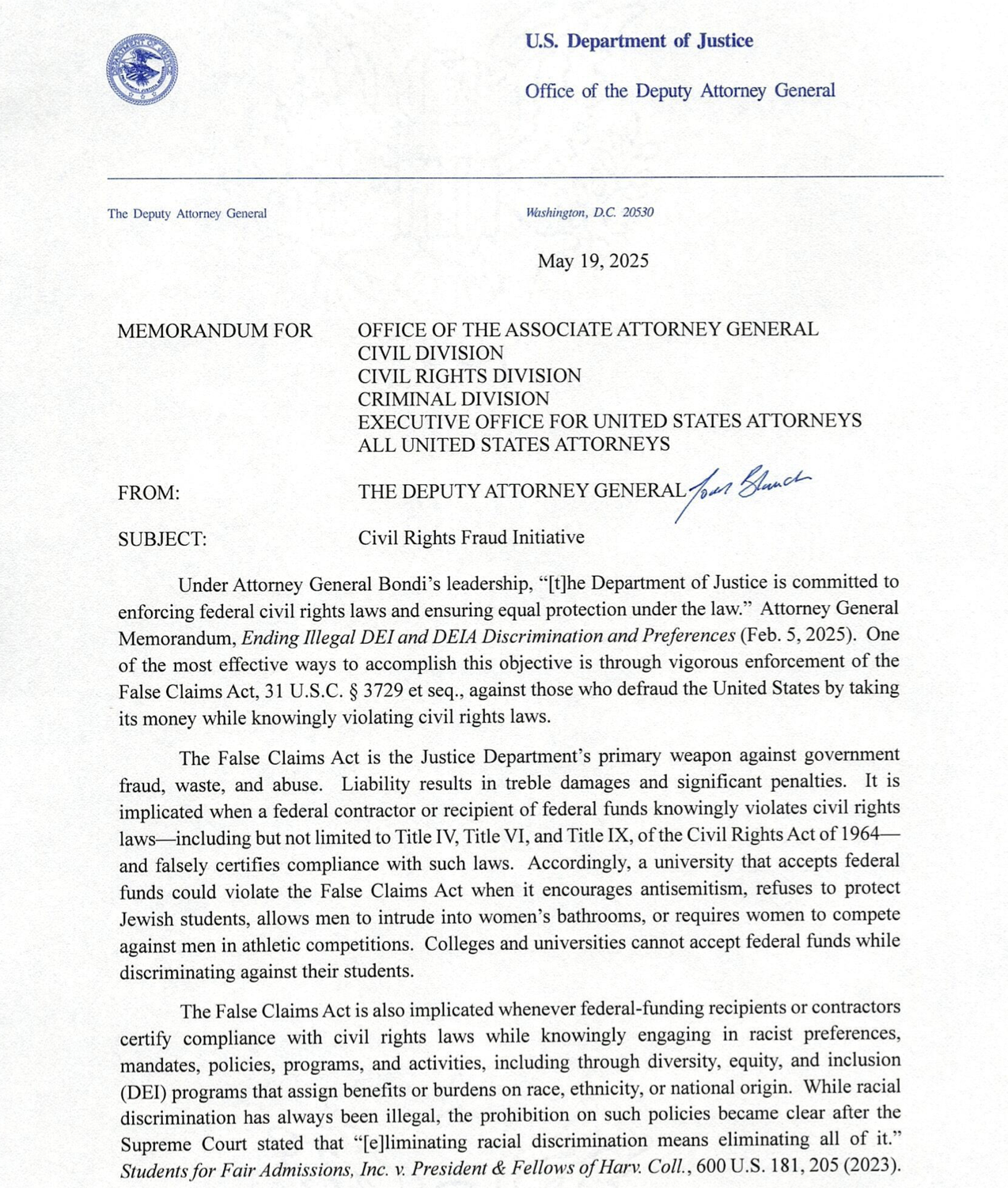













Learn more
EEOC Commissioner Andrea Lucas is named Acting Chair of the Commission; Marvin Kaplan, who served as chair during the president’s first term, is tapped to helm NLRB.
Day 2: January 21 (cont'd)
Employers can expect a greater focus and increase in EEOC-initiated litigation on issues Lucas has championed in the past and in her policy statements, such as alleged illegal DEI policies that make race- and sex-conscious hiring decisions, pregnancy discrimination, and religious discrimination and accommodation issues.
�On Feb. 4, President Trump named Andrew B. Rogers as acting general counsel. Rogers previously served as chief counsel to Lucas.
Additional Resource(s)
Quorum-Less EEOC and New Acting Chair: What Are the Impacts for Employers?
Trump Administration Revokes EO 11246, Prohibits ‘Illegal’ DEI: What the EO Ending Illegal Discrimination and Restoring Merit-Based Opportunity Means for Employers
Post-EO DEI Assessments: What Are They and Why Should You Do Them?




Learn more
Day 2: January 21
EEOC Commissioner Andrea Lucas is named Acting Chair of the Commission; Marvin Kaplan, who served as chair during the president’s first term, is tapped to helm NLRB.
Day 2: January 21
Employers can expect a greater focus and increase in EEOC-initiated litigation on issues Lucas has championed in the past and in her policy statement, such as alleged illegal DEI policies that make race- and sex-conscious hiring decisions, pregnancy discrimination, and religious discrimination and accommodation issues.
�On Feb. 4, President Trump named Andrew B. Rogers as acting general counsel. Rogers previously served as chief counsel to Lucas.
Additional Resource(s)
Quorum-Less EEOC and New Acting Chair: What Are the Impacts for Employers?

Learn more
Day 159: June 27
OFCCP provides federal contractors with the option to voluntarily submit information about actions they have taken in response to EO 14173.
Day 159: June 27
Over the next 90 days, the OFCCP is offering federal contractors the option to voluntarily disclose information about their efforts to phase out compliance with previous regulations. EO 14173, “Ending Illegal Discrimination and Restoring Merit-Based Opportunity,” rescinded EO 11246, a Johnson-era directive that required federal contractors to implement affirmative action programs to ensure equal employment opportunity on the basis of race and sex.
Additional Resource(s)
OFCCP Invites Voluntary Disclosures from Federal Contractors Regarding Executive Order 14173
Revocation of EO 11246 and Prohibition of Certain DEI Practices by the Trump Administration









Learn more
Day 33: February 21
A federal district court issues a preliminary injunction prohibiting the Trump Administration from enforcing three provisions of EOs 14151 and 14173.
Day 33: February 21
The court’s preliminary injunction prohibits the government from enforcing the following provisions of the EOs:
Requiring federal agencies to terminate “equity-related grants or contracts” (“Termination Provision”);
Requiring federal contractors and grant recipients to include in every contract or grant award a certification enforceable through the False Claims Act that the contractor or grantee does not operate illegal DEI programs (“Certification Provision”); and
Directing the attorney general to take appropriate measures to encourage the private sector to end illegal DEI and to identify civil compliance investigations to accomplish said deterrence (“Enforcement Threat Provision”).
National Association of Diversity Officers in Higher Education et al. v. Trump et al., No. 1:25-cv-00333 (D. Md. Feb. 21, 2025).
Additional Resource(s)
Federal Court Blocks Provisions of Trump Administration’s ‘Illegal DEI’ Executive Orders


Learn more
Day 54: March 14
Trump Administration wins motion to stay enforcement of the district court’s preliminary DEI injunction.
Day 54: March 14
Acknowledging that the government had yet to clarify what types of DEI programs it seeks to eliminate and that potential enforcement of EOs 14151 and 14173 could implicate violations of the Fifth Amendment of the U.S. Constitution, a three-judge panel of the U.S. Court of Appeals for the Fourth Circuit concludes that the Trump Administration satisfied the requirements for a stay of enforcement of the preliminary injunction pending appeal.
National Association of Diversity Officers in Higher Education et al. v. Trump et al., No. 25-1189 (4th Cir. Feb. 27, 2025).
Additional Resource(s)
DEI Injunction Falls, For Now: 4th Circuit Allows Trump Administration Agencies to Enforce EOs


Learn more
Day 120: May 19
DOJ announces Civil Rights Fraud Initiative.
Day 120: May 19
The initiative adds enforcement teeth to the “Ending Illegal Discrimination and Restoring Merit-Based Opportunity EO” (see Day 2). It is “co-led by the Civil Division’s Fraud Section, which enforces the [FCA], and the Civil Rights Division, which enforces civil rights laws,” will target the “many corporations and schools” accepting federal funding that “continue to adhere to racists policies and preferences — albeit camouflaged with cosmetic changes that disguise their discriminatory nature.”
The Civil Rights Fraud Initiative directs the DOJ to use the False Claims Act to “investigate and, as appropriate, pursue claims against any recipients of federal funds that knowingly violates federal civil rights laws.”
Additional Resource(s)
DOJ's Civil Rights Fraud Initiative (Memorandum)
Justice Department Establishes Civil Rights Fraud Initiative (Press Release)�


Learn more
Day 137: June 5
EEOC’s Lucas hails Supreme Court’s “reverse discrimination” decision.
Day 137: June 5
A unanimous U.S. Supreme Court in Ames v. Ohio Department of Youth Services holds that “majority group” plaintiffs do not have to provide additional evidence suggesting that their employer was inclined to discriminate against the majority. EEOC Acting Chair Andrea Lucas issued a statement applauding the decision, and cites the EEOC’s longstanding, bipartisan support for the position adopted by the Supreme Court. “Following this week’s decision, the flawed ‘background circumstances’ test no longer shields employers—including ‘our Nation’s largest and most prestigious’—in any jurisdiction nationwide from any race or sex discrimination that may arise from those employers’ DEI initiatives,” Lucas said. (See this Mid-Year Report’s previous section on Supreme Court cases of significance this term).
Additional Resource(s)
U.S. Supreme Court Reverses ‘Reverse’ Employment Discrimination Pleading Standard
Statement from EEOC Acting Chair Andrea Lucas Celebrating the Supreme Court’s Unanimous Ruling in Ames Restoring Evenhanded Application of Title VII


Learn more
Day 85: April 14
DOJ and DOE announce the creation of a “Title IX Special Investigations Team” for “ensur[ing] timely, consistent resolutions to protect students, and especially female athletes, from the pernicious effects of gender ideology in school programs and activities.”
Day 85: April 14
The Team appears to be a reallocation of current government resources rather than any addition of new positions or personnel. The Departments are allocating resources to bolster enforcement of Title IX concerning participation of transgender athletes, the use of intimate spaces, and “gender ideology” generally. Complaints about transgender students participating in athletics or using intimate spaces based on their gender identity, as opposed to their biological sex at birth, likely will be prioritized for enforcement action. Policies and practices relating to pronouns and name changes based on gender identity also will be subject to increased scrutiny.
Institutions subject to Title IX should review their policies and practices to ensure compliance with current law, review their Title IX training materials, and consider the benefits of providing employees with additional training.
Additional Resources
Institutions’ Title IX Compliance Under the Microscope: DOJ, ED Form Special Investigations Team to Enforce Gender Ideology EOs



Learn more
It’s official: Trump DOL won’t enforce Biden independent contractor rule.
Day 102: May 1 (cont’d)
The DOL will no longer apply the 2024 independent contractor final rule when analyzing whether a worker is an employee or independent contractor under the Fair Labor Standards Act (FLSA).
The Acting WHD administrator issues a Field Assistance Bulletin instructing DOL field staff to apply prior agency guidance in enforcement actions involving independent contractor status under the FLSA.
Additional Resources
Businesses Get a Break: DOL Won’t Enforce 2024 Independent Contractor Rule

Day 159: June 27
Over the next 90 days, the OFCCP is offering federal contractors the option to voluntarily disclose information about their efforts to phase out compliance with previous regulations. EO 14173, “Ending Illegal Discrimination and Restoring Merit-Based Opportunity,” rescinded EO 11246, a Johnson-era directive that required federal contractors to implement affirmative action programs to ensure equal employment opportunity on the basis of race and sex.
Additional Resource(s)
OFCCP Invites Voluntary Disclosures from Federal Contractors Regarding Executive Order 14173


Learn more
Day 159: June 27
SCOTUS releases its CASA decision, ending nationwide injunctions and creating uncertainty around enforcement of executive and agency actions.



Day 159: June 27
The Court’s 6-3 opinion partially stayed the nationwide injunctions issued by three district courts against enforcing President Trump’s EO 14160, “Protecting the Meaning and Value of American Citizenship,” that plaintiffs believe fundamentally changed birthright citizenship guaranteed by the U.S. Constitution. Trump, et al. v. CASA, Inc., et al.
While the opinion ends district courts’ ability to issue nationwide injunctions, the Court did not address the underlying issue in the case involving the constitutionality of an EO limiting birthright citizenship.
Many previous nationwide injunctions affected employers across a wide range of issues beyond immigration, including DEI, overtime rules and non-competes.
EO 14160 will take effect 30 days after the opinion date (07.27.25), and government agencies can develop and issue guidance concerning the implementation of the order.
Additional Resource(s)
SCOTUS’s CASA Decision Ends Nationwide Injunctions, Creating Uncertainty Around Enforcement of Executive and Agency Actions


Learn more
Day 159: June 27
OFCCP provides federal contractors with the option to voluntarily submit information about actions they have taken in response to EO 14173.

Learn more
Day 12: January 31
President Trump issues EO 14192, Unleashing Prosperity Through Deregulation, with an accompanying fact sheet containing instructions for “halting the regulatory onslaught.”
Day 12: January 31
EO 14192 applies generally to all executive agencies, except for regulations that address military or foreign affairs functions, homeland security or immigration-related initiatives. The deregulation order is intended “to promote prudent financial management and alleviate unnecessary regulatory burdens [that despite] the magnitude of their impact. . . are often difficult for the average person or business to understand.” Among the instructions in the fact sheet accompanying EO 14192 is a “massive 10-to-1” initiative that calls for agencies to identify “at least” 10 existing regulations to be rescinded.
Additional Resource(s)
Unleashing Prosperity Through Deregulation – The White House
Fact Sheet: President Donald J. Trump Launches Massive 10-to-1 Deregulation Initiative – The White House

Learn more
Day 162: June 30
The Trump Administration’s deregulatory push across all executive agencies gains momentum as DOL, OSHA, MSHA and others publicly advance multiples proposals
Day 162: June 30
DOL’s actions are part of the implementation of President Trump’s EO 14192, Unleashing Prosperity Through Deregulation. (See Day 12.) They include steps to formally eliminate the regulations underpinning the OFCCP’s authority and ability to audit and investigate federal contractors for potential race and sex discrimination; final rules to stop Employee Benefits Security Administration interpretive bulletins and regulations regarding prohibited transactions and other rules for certain plan contracts; and proposed recission of rules related to minimum wage and overtime protections for certain health aides, anti-discrimination requirements for apprenticeship programs, union organizing protections for foreign farmworkers, and requirements for employers to record work-related musculoskeletal disorders.
As part of this push, OSHA and MSHA announce they will publish more than 30 proposed rules in the Federal Register on July 1, 2025. Included in OSHA’s slate of proposed rules is a Rescission of Coordinated Enforcement Regulations, and a proposed clarification of its Interpretation of the General Duty Clause. Many of the OSHA and MSHA proposals request public comment.
DOL also announced proposed rules to modify the VEVRAA and Section 503 regulations, which govern federal contractor affirmative action obligations for veterans and individuals with disabilities.
Jackson Lewis is monitoring developments related to the ongoing deregulation effort and is developing specific resources devoted to it. In the meantime, please contact your Jackson Lewis attorney with any questions or if you would like to discuss these proposed rules.
Additional Resource(s)
Department of Labor Proposed Budget Seeks to Completely Dismantle OFCCP
BREAKING NEWS: OSHA, MSHA to Publish 30+ Proposed Rules July 1
OFCCP Proposes Changes to Veterans and Disability Regulations

Learn more
President Trump signs a presidential memorandum requiring agencies to rescind regulations that are unlawful under 10 recent Supreme Court decisions.
Day 80: April 9 (cont’d)
Following up on EO 14219, Ensuring Lawful Governance and Implementing the President’s “Department of Government Efficiency” Deregulatory Initiative, the memorandum directs agencies to prioritize evaluating each existing regulation’s lawfulness under the following SCOTUS decisions:
Loper Bright Enterprises v. Raimondo, 603 U.S. 369 (2024)
West Virginia v. EPA, 597 U.S. 697 (2022)
SEC v. Jarkesy, 603 U.S. 109 (2024)
Michigan v. EPA, 576 U.S. 743 (2015)
Sackett v. EPA, 598 U.S. 651 (2023)
Ohio v. EPA, 603 U.S. 279 (2024)
Cedar Point Nursery v. Hassid, 594 U.S. 139 (2021)
Students for Fair Admissions v. Harvard, 600 U.S. 181 (2023)
Carson v. Makin, 596 U.S. 767 (2022)
Roman Cath. Diocese of Brooklyn v. Cuomo, 592 U.S. 14 (2020)
Additional Resource(s)
Directing the Repeal of Unlawful Regulations – The White House
Fact Sheet: President Donald J. Trump Directs Repeal of Regulations That Are Unlawful Under 10 Recent Supreme Court Decisions – The White House
Attending to EEOC’s New Workplace Focus: Antisemitism on College Campuses �Requests for Information





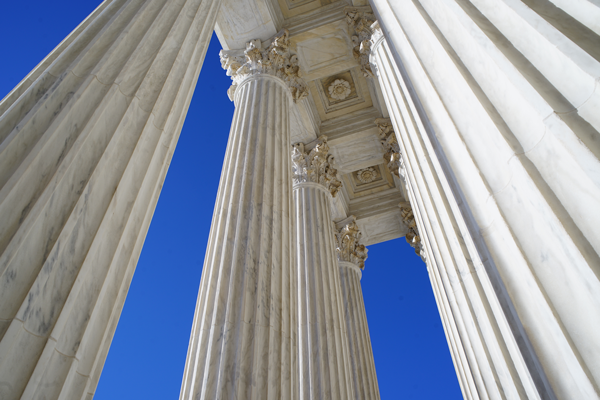


Learn more
Day 162: June 30
The Trump Administration’s deregulatory push across all executive agencies gains momentum as DOL publicly advance multiples proposals
Day 162: June 30
DOL’s actions are part of the implementation of President Trump’s EO 14192, Unleashing Prosperity Through Deregulation. (See Day 12). They include steps to formally eliminate the regulations underpinning the OFCCP’s authority and ability to audit and investigate federal contractors for potential race and sex discrimination; final rules to stop Employee Benefits Security Administration interpretive bulletins and regulations regarding prohibited transactions and other rules for certain plan contracts; and proposed recission of rules related to minimum wage and overtime protections for certain health aides, anti-discrimination requirements for apprenticeship programs, union organizing protections for foreign farmworkers, and requirements for employers to record work-related musculoskeletal disorders.
As part of this push, OSHA and MSHA announce they will publish more than 30 proposed rules in the Federal Register on July 1, 2025. Included in OSHA’s slate of proposed rules is a Rescission of Coordinated Enforcement Regulations, and a proposed clarification of its Interpretation of the General Duty Clause. Many of the OSHA and MSHA proposals request public comment.
DOL also announced proposed rules to modify the VEVRAA and Section 503 regulations which govern federal contractor affirmative action obligations for veterans and individuals with disabilities.
Jackson Lewis is monitoring developments related to the ongoing deregulation effort and is developing specific resources devoted to it. In the meantime, please contact your Jackson Lewis attorney with any questions or if you would like to discuss these proposed rules.
Additional Resources
Department of Labor Proposed Budget Seeks to Completely Dismantle OFCCP
BREAKING NEWS: OSHA, MSHA to Publish 30+ Proposed Rules July 1
OFCCP Proposes Changes to Veterans and Disability Regulations


Learn more
Day 80: April 9
President Trump signs a presidential memorandum requiring agencies to rescind regulations that are unlawful under 10 recent Supreme Court decisions.
Day 80: April 9
Following up on EO 14219, Ensuring Lawful Governance and Implementing the President’s “Department of Government Efficiency” Deregulatory Initiative, the memorandum directs agencies to prioritize evaluating each existing regulation’s lawfulness under the following SCOTUS decisions:
Loper Bright Enterprises v. Raimondo, 603 U.S. 369 (2024)
West Virginia v. EPA, 597 U.S. 697 (2022)
SEC v. Jarkesy, 603 U.S. 109 (2024)
Michigan v. EPA, 576 U.S. 743 (2015)
Sackett v. EPA, 598 U.S. 651 (2023)
Ohio v. EPA, 603 U.S. 279 (2024)
Cedar Point Nursery v. Hassid, 594 U.S. 139 (2021)
Students for Fair Admissions v. Harvard, 600 U.S. 181 (2023)
Carson v. Makin, 596 U.S. 767 (2022)
Roman Cath. Diocese of Brooklyn v. Cuomo, 592 U.S. 14 (2020)
Additional Resource(s)
Directing the Repeal of Unlawful Regulations – The White House
Fact Sheet: President Donald J. Trump Directs Repeal of Regulations That Are Unlawful Under 10 Recent Supreme Court Decisions – The White House

Learn more
Day 12: January 31
President Trump issues EO 14192, Unleashing Prosperity Through Deregulation, with an accompanying fact sheet containing instructions for “halting the regulatory onslaught.”

Day 12: January 31
EO 14192 applies generally to all executive agencies, except for regulations that address military or foreign affairs functions, homeland security or immigration-related initiatives. The deregulation order is intended “to promote prudent financial management and alleviate unnecessary regulatory burdens [that despite] the magnitude of their impact . . . are often difficult for the average person or business to understand.” Among the instructions in the fact sheet accompanying EO 14192 is a “massive 10-to-1” initiative that calls for agencies to identify “at least” 10 existing regulations to be rescinded.
Additional Resource(s)
Unleashing Prosperity Through Deregulation – The White House
Fact Sheet: President Donald J. Trump Launches Massive 10-to-1 Deregulation Initiative – The White House

Benefits Timeline
Days 184 – 365 + Beyond
Jackson Lewis continues monitoring workplace-related Trump Administration and federal and state-level legislative �and court activities to develop resources that assess and address their impact �on employers.


Top
Top
Top
Top
Top
Top
Top
Top
Top


Download the Report